Department News
"Education is the passport to the future,
for tomorrow belongs to those who prepare for it today."
— Malcolm X
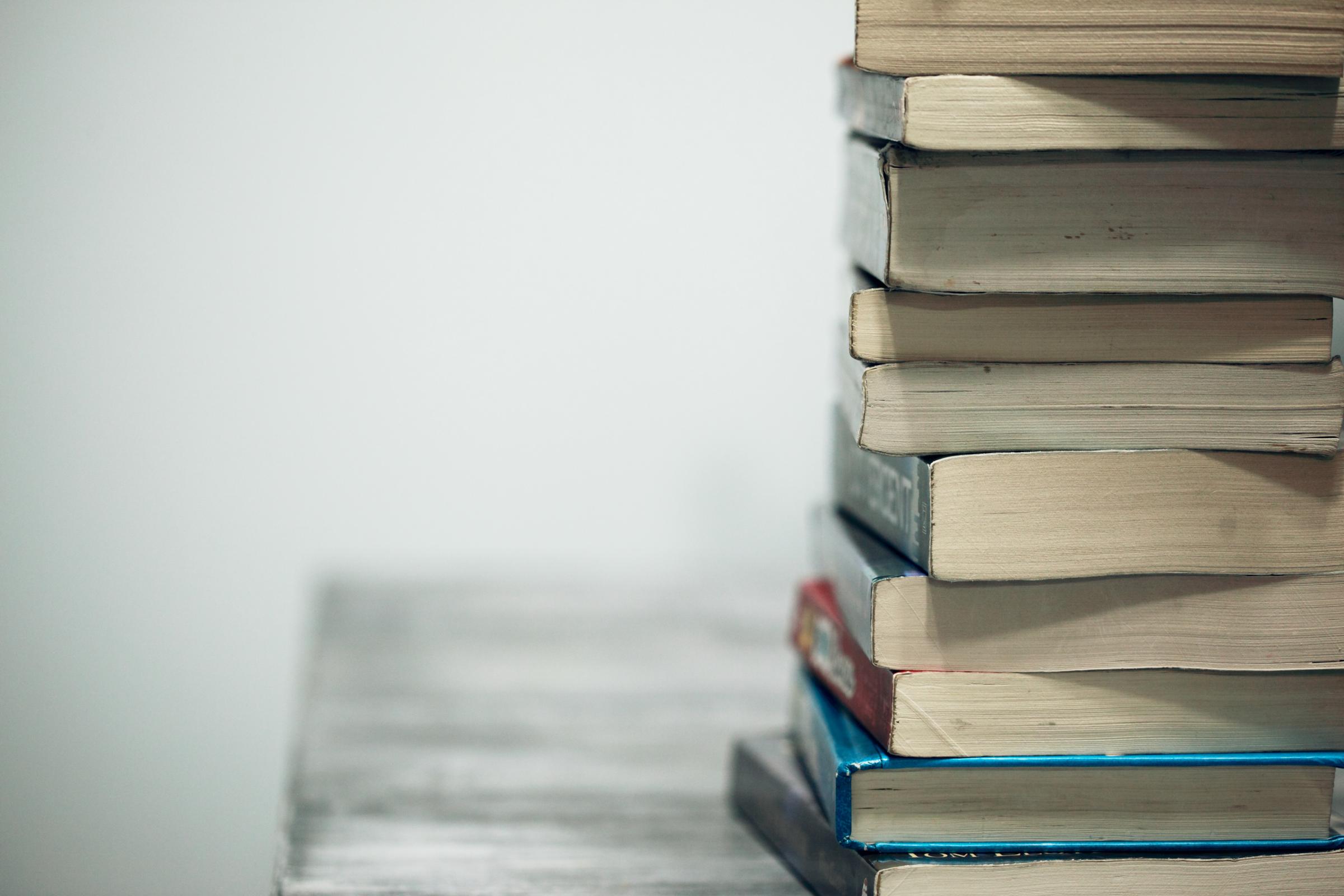
Department News
"Education is the passport to the future,
for tomorrow belongs to those who prepare for it today."
— Malcolm X
"When I look back, I am so impressed again with the life-giving power of literature. If I were a young person today, trying to gain a sense of myself in the world, I would do that again by reading, just as I did when I was young." –
Maya Angelou
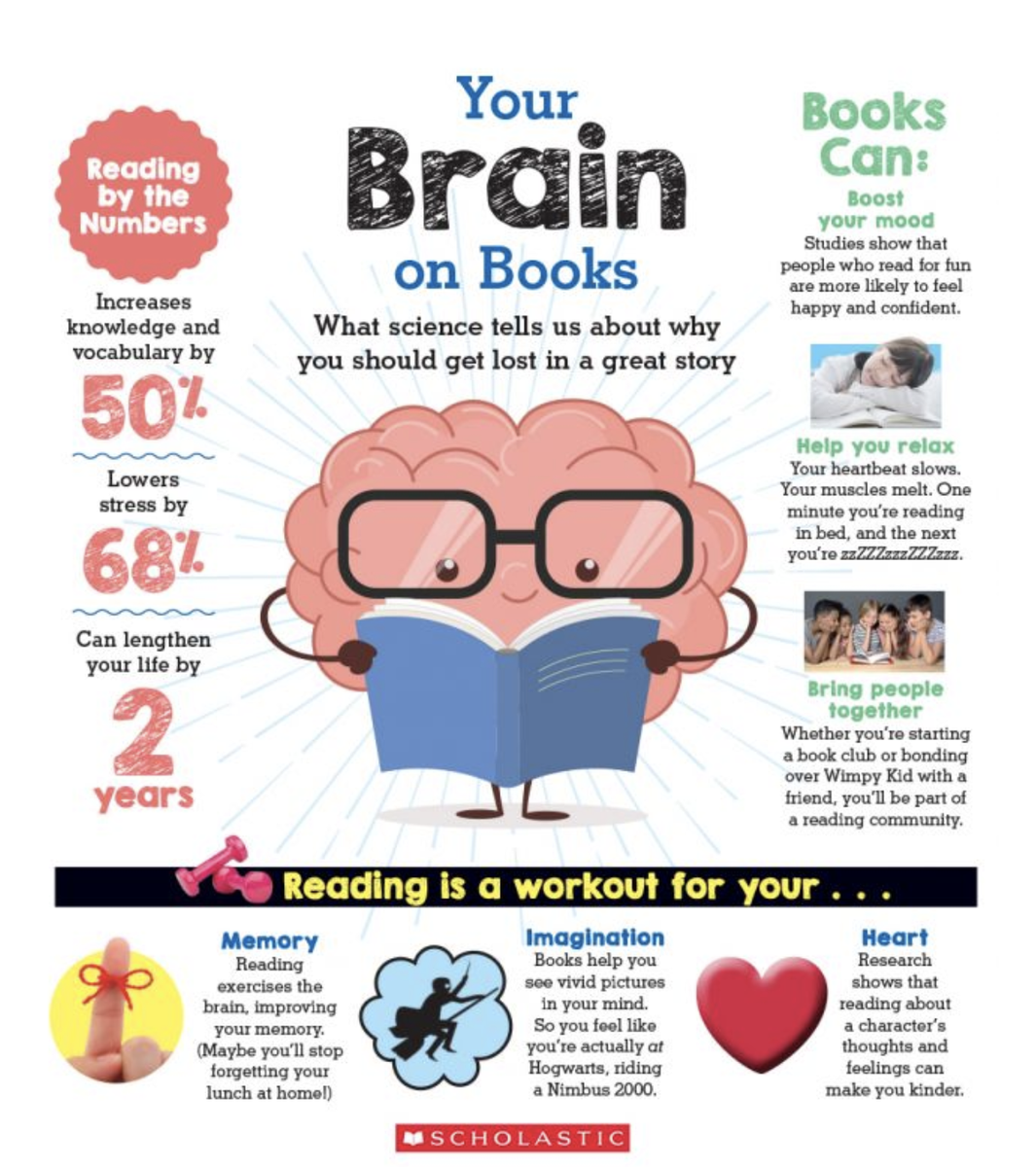

The right to read is fundamental to a free and humane society. Reading provides expression for individual and cultural diversity.
Reading is integral to learning. Its purpose is to inform students' knowledge of themselves, the world and to enhance their ability to communicate that knowledge. It allows for the promotion of a student's cognitive development as well as social, spiritual, emotional, moral and mental well-being.
Reading begins with decoding and involves the comprehension, appreciation and understanding of the cultural implications of a text. Texts may be written, spoken, visual, graphic or multimedia.
Because meaning is influenced by subjectivity, situational and cultural contexts, it is important that the reading process also involves the critical questioning and evaluation of a text.
Offer ChoiceAllow teens to choose their own books based on their interests. This empowers them and increases the likelihood of them engaging with the material.
Create a Reading SpaceSet up a comfortable and inviting reading space at home. A cosy nook with good lighting can make reading more enjoyable.
Set a Good ExampleDemonstrate a love for reading by letting teenagers see you enjoy books. Share your reading experiences and recommendations.
Integrate TechnologyExplore ebooks or audiobooks, especially if teenagers are tech-savvy. Some teens may prefer these formats, and they are convenient for on-the-go reading.
Connect Books to InterestsFind books that align with their hobbies or interests. Whether it's science fiction, sports, music, or adventure, there are books for every passion.
Explore Graphic NovelsGraphic novels can be a great way to introduce storytelling through a visual medium, making the reading experience more dynamic and appealing.
Visit the LibraryPlan regular trips to the library. Libraries often have summer reading programs with incentives, which can motivate teenagers to read.
Recommend Book-to-Movie AdaptationsSuggest books that have been adapted into movies or TV series. This can provide an extra incentive, as they can compare the book to the on-screen version.
Mix Fiction with Non-FictionOffer a variety of genres, including non-fiction. Some teenagers may prefer learning about real-world topics.
Host a Book SwapOrganise a book swap event where teenagers can exchange books with their friends. This introduces them to new titles and creates a sense of community around reading.
Don’t Leave without a book Provide a special bag or backpack designated for carrying books. This can be a stylish tote or a backpack that teenagers can personalise.
So, keep flipping those pages, for within them lies an endless voyage that transcends both time and place.
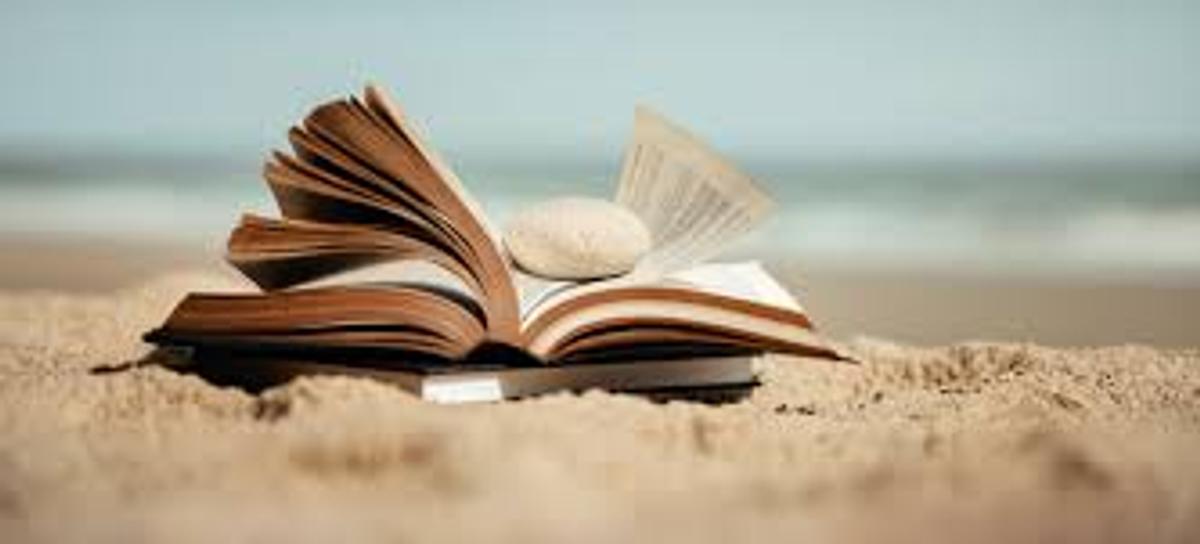

This Book Changed Me
When we are young children, we often learn about the outside world through books. As we grow, it is books that help us learn about ourselves and each other. An encounter with a book can transform the way we see the world and radically shift who we are as people. Get some holiday reading inspiration from our guest writers who share the books that have changed them.
Le Petit Prince by Antoine De Saint-Exupéry


Poppy Hogan
The naive laughter of childhood, the warmth of changing emotions and a world alive with vivid colour. All which seem to fade as we strike the calendar, year after year. We are destined to lose the boundless sense of freedom that once defined us, and become confined to the cold, numerical banality of monologic society. Le Petit Prince by Antonie de Saint-Exipéry has resonated with me since childhood, teaching me to reject the oppressive collective that stifles creativity and to cherish the lightness and whimsy we are all inherently born with. The novella recounts the tale of a young boy who tends lovingly to his tiny planet [Asteroid B-612], tirelessly protecting it from the toxic baobabs and nurturing His Special Rose. Though he finds joy in the solace of His 42 sunsets, the Prince realises he must leave to explore other worlds. His journey to Earth serves as a deeply cautionary tale about adulthood. Confronted by the utter absurdity and rigidity of grownups, he witnesses how easily the spark of wonder is extinguished as we age, allowing us to remember what it truly means to be alive. It is a reminder that the value of life is not derived from wealth or power or profession, but rather, the wonder of the stars, the little lamb in the box and our Rose. The little prince Profoundly impacted me to break from the predetermined linear cycle of adulthood, encouraging me and other readers to forge our own paths and defy the banalities of a dull predisposed destiny.
A Book that Changed Me - Lucia Moore
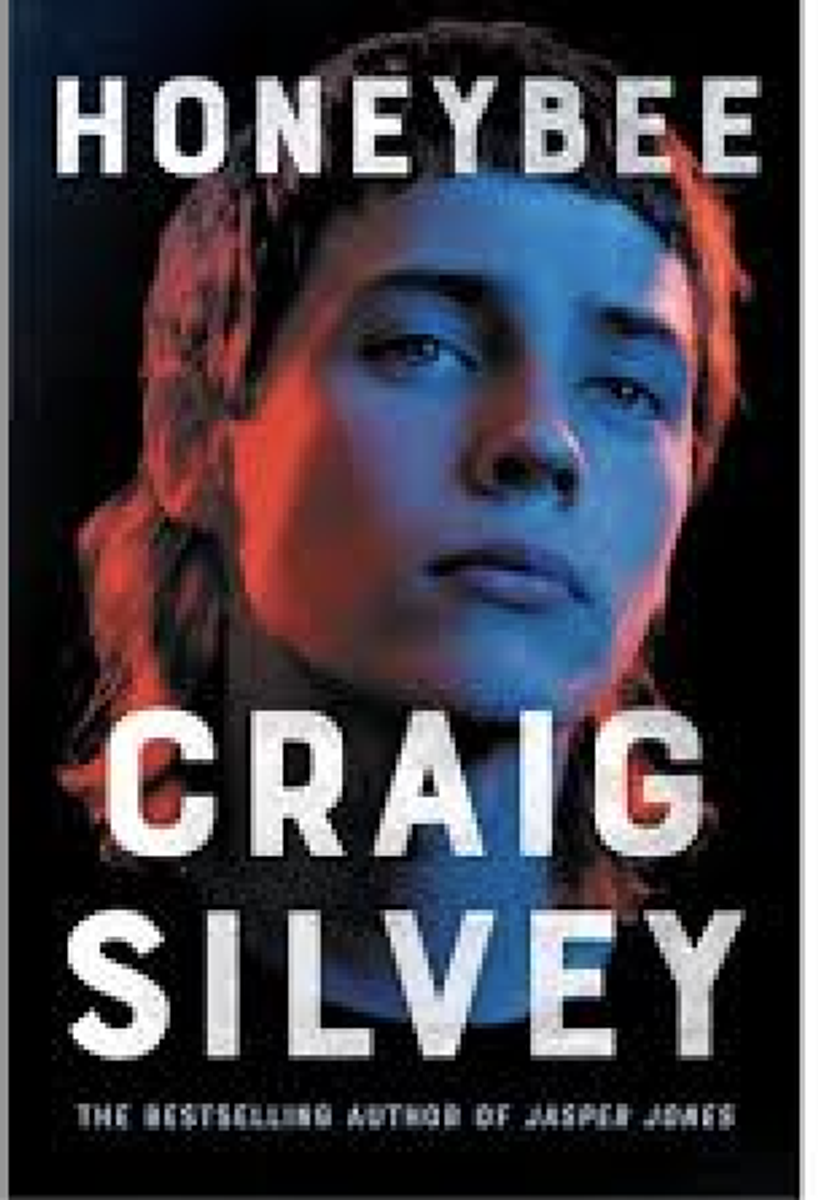

Honeybee by Craig Silvey
Honeybee (2020) by Craig Silvey focuses on a young teenager’s journey of self-discovery and acceptance. Having long admired Silvey’s writing, I’ve always been drawn to his portrayal of Australian adolescents grappling with reality. Honeybee is a deeply compassionate story that explores the healing power of trauma, self-acceptance, and the search for belonging. At its heart, the novel follows Sam, a transgender teenager navigating the complexities of gender dysphoria while confronting societal taboos and stereotypes surrounding gender and transgender identities. The core of Honeybee lies in Sam’s journey, a process of self-discovery, from struggling with the boundaries of expression to facing external pressures that enforce rigid identity roles. As Sam grapples with the physical changes that seem misaligned with her inner self. Silvey weaves a poignant narrative around the unlikely relationship between Sam and Vic. Through this bond, Silvey explores the power of human connection in healing and offering new possibilities. Their relationship becomes a space of refuge, helping Sam confront their past and envision a different future, one that’s not defined by trauma or rejection but by acceptance and love.
Published in 2020, Honeybee is a powerful exploration of the lived experiences of those within the LGBTQIA+ community. The novel resonates more broadly; with anyone navigating the turbulence of adolescence. Exploring how we form our identities, and examines how societal expectations, prejudices, and personal struggles shape us. Honeybee left a lasting impact on me, reshaping how I understand both the world and society. Honeybee dives into many facets of Australian life, from poverty and substance abuse to the challenges of being queer or transgender in a society that often marginalizes difference. Honeybee is a powerful reminder of the importance of empathy, connection, and the impact of showing up for one another.
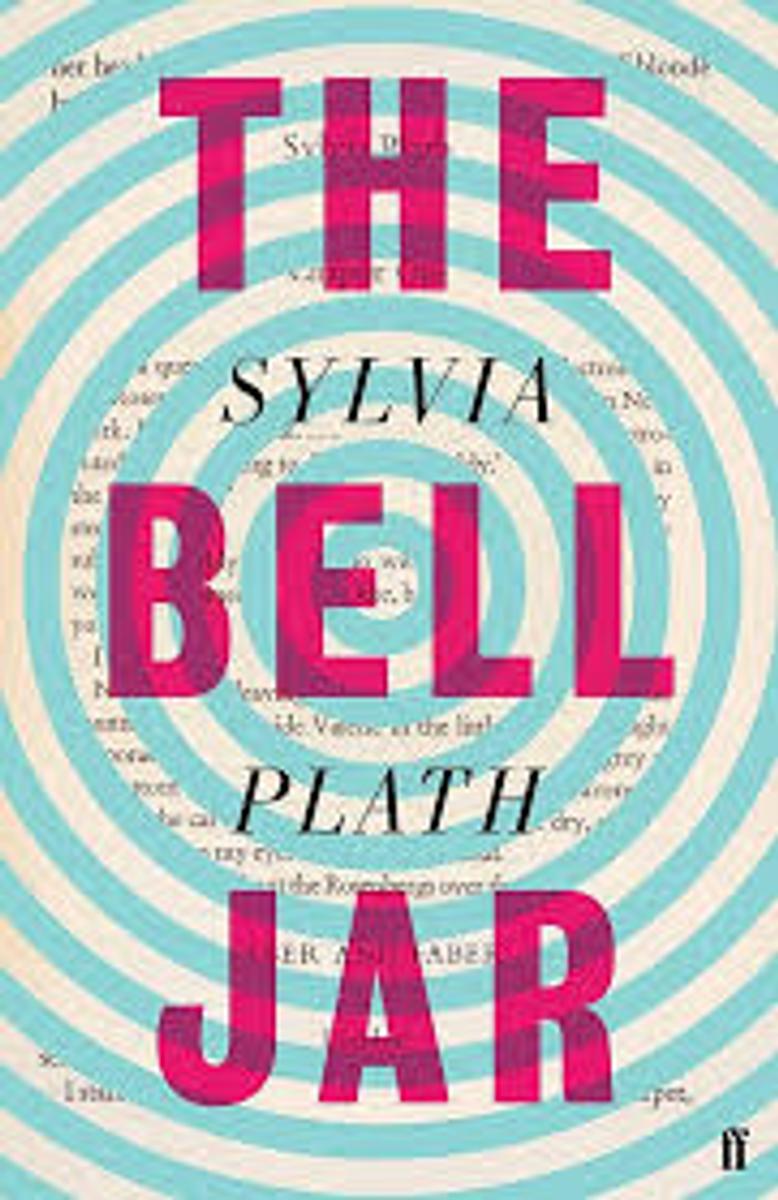

The Bell Jar by Sylvia Plath
Isla Dindial
I’ve always been fascinated by psychology and identity, and so when I first read Sylvia Plath’s semi-autobiographical novel The Bell Jar, I was immediately captivated by the darkly accurate way in which she conveys the downfall of the human psyche. For me, this book really gained its power for its ability to confront us about our inherent darkness, exposing our tendency towards self corruption. Especially in an age where sadness is often pushed aside or stigmatised, this text crucially empathises with the reader in a way that is terrifying yet also brutally honest, revealing the universal dark side of the human psyche. While we often choose to ignore or bury this side of ourselves, because it is too repulsive or harrowing to accept, Plath forces us to accept ourselves in the face of our inner turmoil, conveying psychological depravity with a sense of dark beauty.
I also found that Plath’s exploration of identity, societal pressures and the elusivity of perfection continues to hold poignant relevance in the modern world, especially considering the emergence of the digital age. I feel that the prevalence of social media has ultimately resulted in a cultural paradox where people suffer from an overwhelming desire to be perfect while grappling with their own inevitable insecurities. Just as Esther hides her psychological struggles under the glittering facade of her New York life, we conceal ourselves behind the controlled perfection of the online world in order to mask our own insecurities.
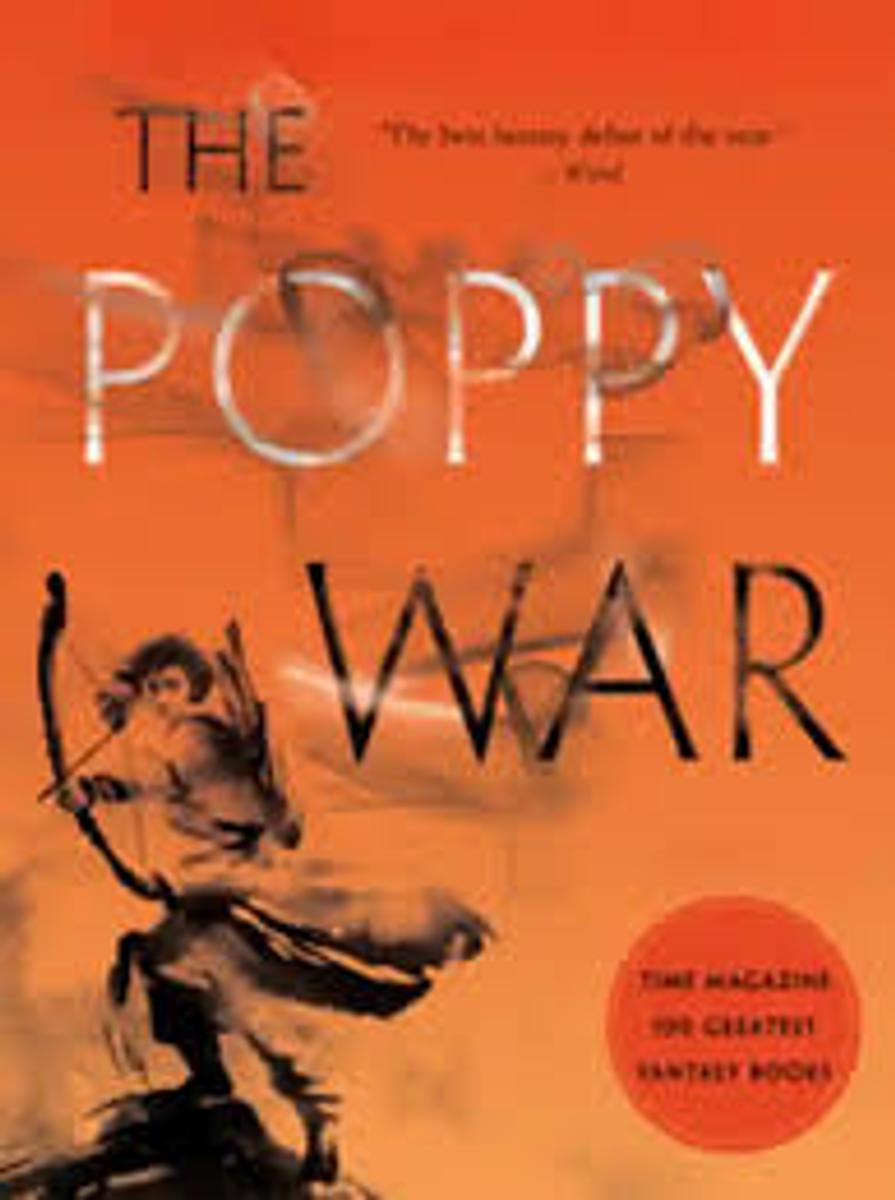

Poppy War by R.F Kuang
Kyna Darragh
Despite Poppy War being a fantasy novel, the book holds significant relevance to real life through the struggles that each character faces, specifically Rin. This book had a large impact on me not only because of these realistic struggles but also the way in which the author wrote the book whereby despite never being in a similar situation or having faced what Rin faces, I was still able to connect and sympathise with her on a deeper level which has caused me to look at life differently.
Rin is adopted after a war by a family who does not want her. Her adopted mother attempts to sell her as a bride to a man three times her age and in her desperation she takes an extremely hard exam in order to escape to another life in the process pushing herself past her limits in order to get the grades she wants. This in and of itself is a struggle that many students can relate to but I believe that the most significance comes from the discovery of her identity. Upon joining the school she is shunned for being a peasant from the Rooster province. She is mocked for her accent and the colour of her skin, being called things such as “mud face.” She tries to overcome these racist comments, not by fighting back against them but instead attempting to assimilate into the community that she lives in by learning to change her accent. This was not only heartbreaking but also symbolic of the struggles of fighting to overthrow a stereotype that is deep rooted in society especially when you are so dependent on that society. I believe it shines a light on the responsibility that those in power hold to ensure that harmful stereotypes are not continued as they often take advantage of people who are not in the position to fight against them. Ironically, since Rin was adopted she is not actually part of the Rooster province but instead part of a race massacred by her adopted country. As soon as this becomes apparent, she is used for the special abilities that these people have and forced to fight in a war defending the same people who massacred her family. This also highlights the intricacies of identity, where Rin herself has no say in the matter and is not able to identify herself as one way or the other. The majority are the ones who give, and also strip her identity from her depending on what option best suits their needs. This leads to a sense of helplessness which Rin displays again and again to whoever shows even a glimpse of kindness to her as she fiercely attaches herself to them without questioning their morals and goals.
All this shows the harsh impact of a society which enforces stereotypes especially on those who are already vulnerable. Reading this book made me more aware of how these issues present themselves in the real world and allowed me to question the messages and stereotypes that I might be supporting or playing into without realising.
George Orwell - Animal Farm
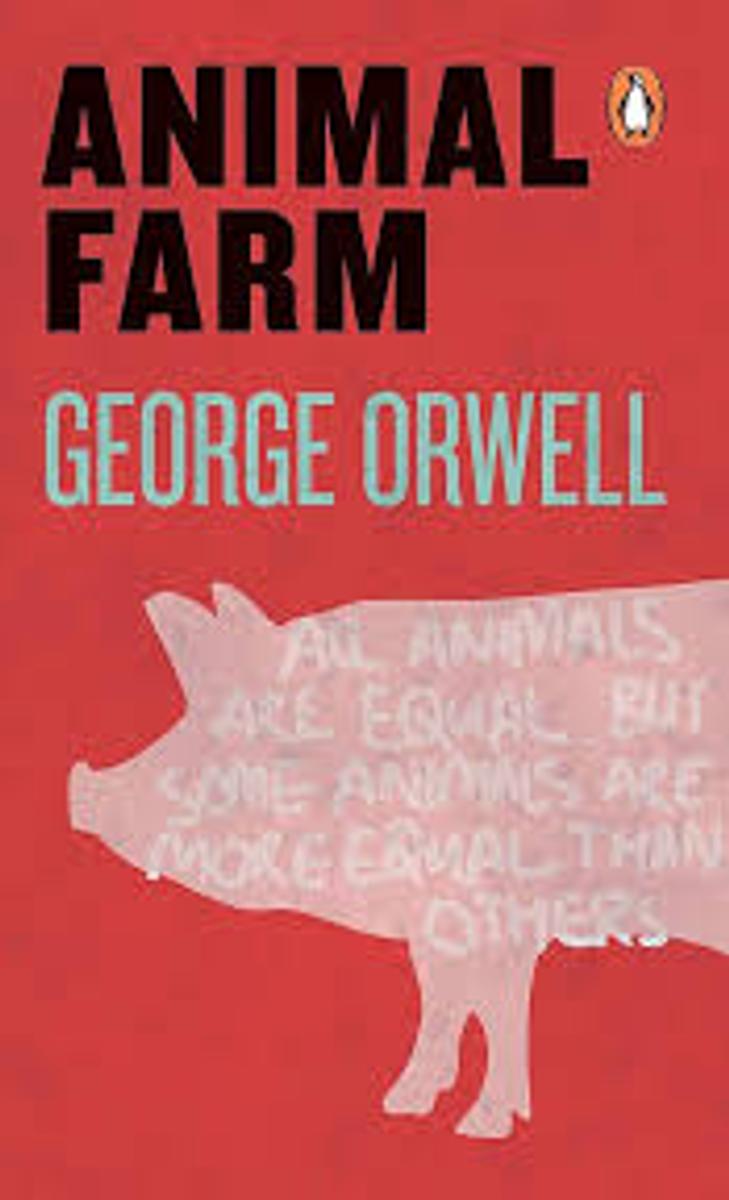

Isabella Larbalestier
Continuously searching for inspiration and understanding of our multifaceted world, I was intrigued by the satirical fable against Stalin’s tyrannical control in Animal Farm by George Orwell. The usage of animals and lovable figures as an element of childhood storytelling were used in a beguiling manner within Orwell’s novella to expose and critique issues affecting the contemporary world, such as the government's perversion of language to uphold their ideology of being for the people. Orwell’s novella was impactful in increasing my awareness of the cruciality of acting on social injustices, sharpening my ability to critique the flawed ideologies of perceived utopia and propaganda, ultimately inspiring me to fuse my perspective of the world with Orwell’s critical lens. Animal Farm's union of political purpose and artistic elements prompted me to view creativity as a powerful tool in remaining firm in my individuality, due to the allegory revealing the disastrous impacts of complacency. Additionally the allegorical form intertwined my love of common seemingly inane characters such as Squealer, Napoleon and Mollie with a symbolic message, as the characters act as vehicles to convey the injustices committed during Joseph Stalin’s reign. Subsequently Orwell opened a new chapter not only in my newly acquired world lens but influenced my understanding of the cyclical structure of life, through depicting the issue of tyrannical rulers whose relevance transgresses the novella’s context. Thus greatly influencing my understanding of the detrimental effects of oppressive leaders, governments and ideologies, which I found poignant through the susceptibility of society to these oppressive forces. As in the span of only 160 pages the slogan of ‘Four legs good Two legs bad’ diminishes to ‘Four legs good, two legs better!, occurring alongside the animals' warped understanding of their reality, leading them to succumb to the political ‘truth’ of the pigs, losing their autonomy. Hence the thought provoking lens influenced my awareness and emphasised questioning the ‘truth’ of authority and acquiring a more informed view of leadership, to maintain my own autonomy and the autonomy of wider society lost in Animal Farm.
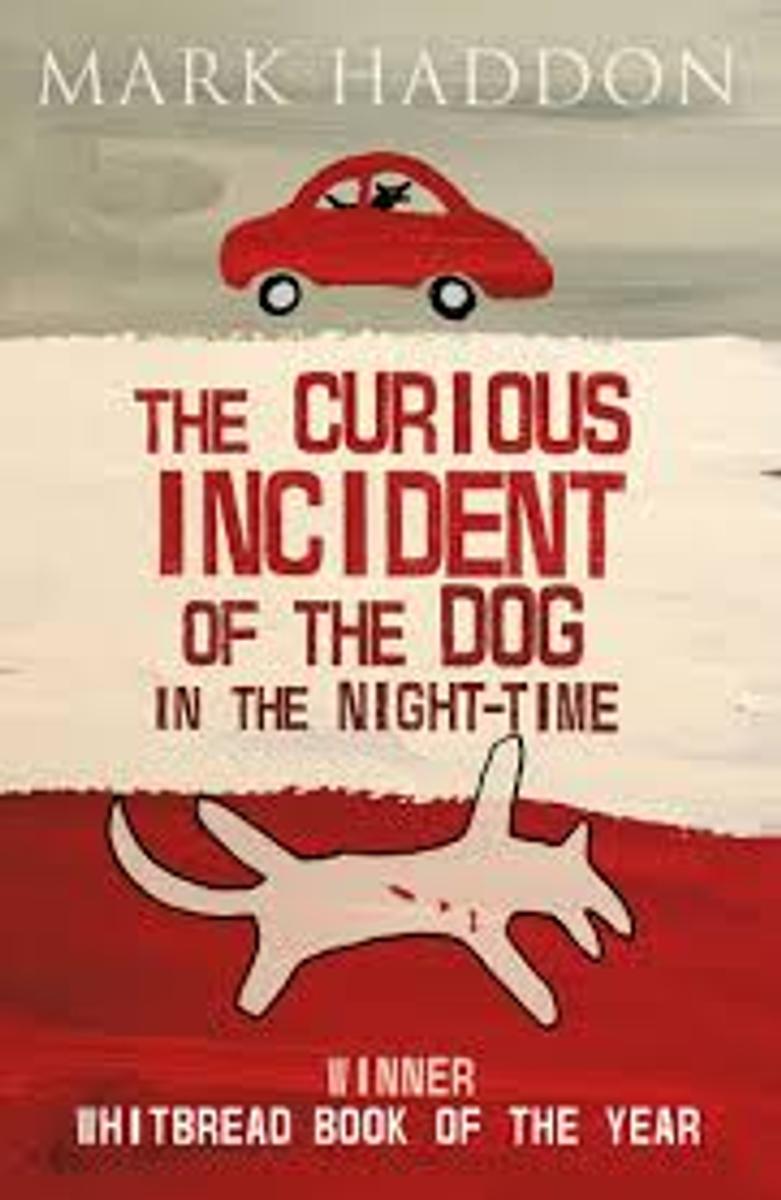

The Curious Incident of the Dog in the Night-Time, by Mark Haddon
Lily Caddle
I was only truly able to understand the importance and limits of empathy by reading The Curious Incident of the Dog in the Night-Time, by Mark Haddon. This novel explores the endeavour of Christopher Boone, a fifteen-year-old boy who has Asperger's syndrome, in his attempt to uncover who has killed his neighbour’s dog. We see this inquiry through Christopher’s eyes, we see his internal monologue and his thought process through the pages, which are notably interwoven with maths, puzzles, emotive faces, patterns and illustrations of cows, amongst other things. We learn that Christopher’s worldview is shaped by not only his experiences, but also his analytical outlook, his tribulation with emotions, and his aversion to sensory overload, all of which influence how he responds to the world. In encountering life from Christopher’s perspective (a perspective that varied greatly from mine), I was called to embrace how individual experiences mould the way each of us interprets and interacts with the world. In doing so, I questioned how some tend to categorise individuals, stereotyping without considering underlying experiences or cognitive intricacies. In projecting a lack of empathy before making a judgement, individuals become blind to the ambiguity of others’ emotions or thoughts. Thus, this novel taught me never to lose sight of the idiosyncratic perspectives each of us carries, serving as a reminder as to how our assumptions tend to make us ignorant. Although The Curious Incident of the Dog in the Night-Time urged me to foster empathy over rash determinations, it also uncovered the inability to wholly know others' experiences, speaking to a fundamental limitation in human interaction. Thus, the novel taught me to never lose sight of empathy, particularly in a world in which people continue to isolate those with deviating views or experiences. Yet, it further enforces that even with the best intentions, we may be incapable of truly and intimately understanding the experiences of others, meaning the best we can do is try.
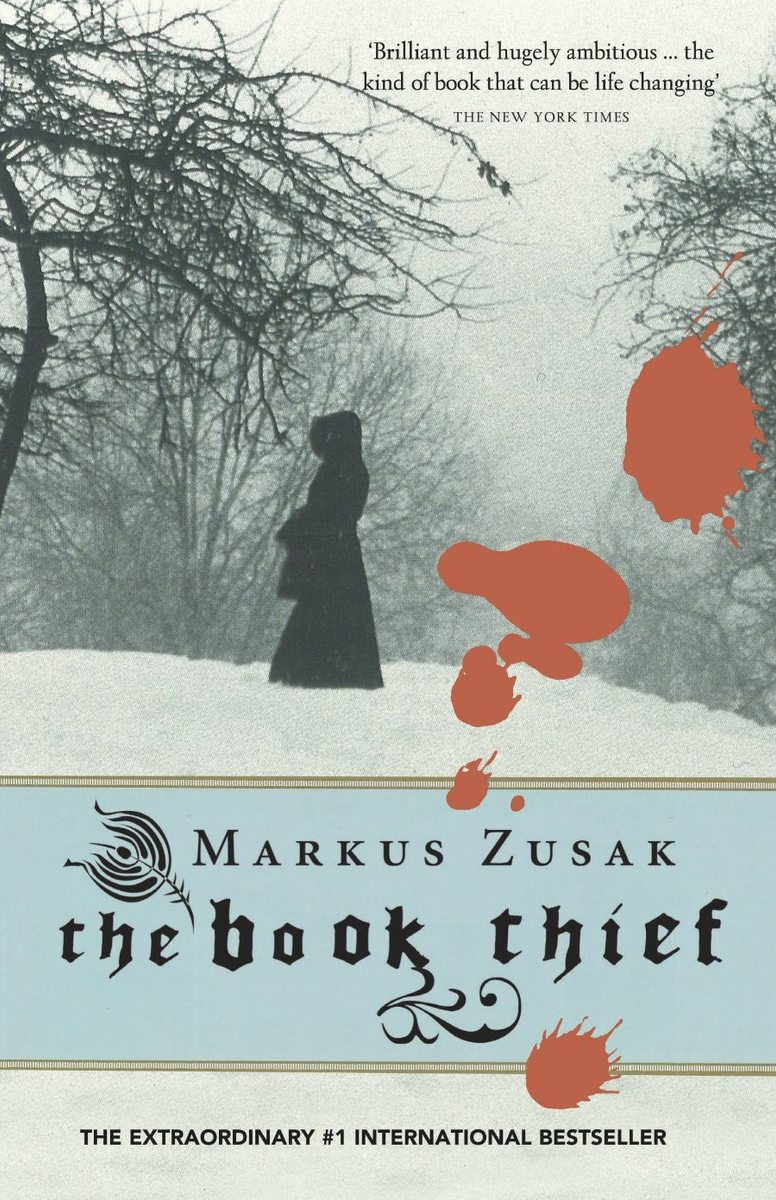

The Book Thief by Markus Zusak is a beautifully woven story of war, grief and love that left me sobbing. It humanises the civilians in war, who are often represented as statistics, viewed by those in power as expendable or even actively killed by leaders. The text is written from the perspective of Death, which I found incredibly moving, with the entity’s poems and insights into humanity changing how I view life. The main character, Liesel, and her connection with books, gave me a deeper understanding of the importance of literature; the power of stories to give hope in times of darkness and the power of creating to forge identity, to make life worth living. This book evokes empathy for those in war, portraying the beauty of humanity in the worst of times. The Book Thief is a novel I feel everyone should read in their lifetime; it truly has the power to bring a more peaceful, loving and empathetic world, through the pain, joy and love it conveys.
Creating a travesty of love, Haruki Murakami’s Sputnik Sweetheart focuses on the temporality of relationships through a surrealist amplification of the narrative’s world.
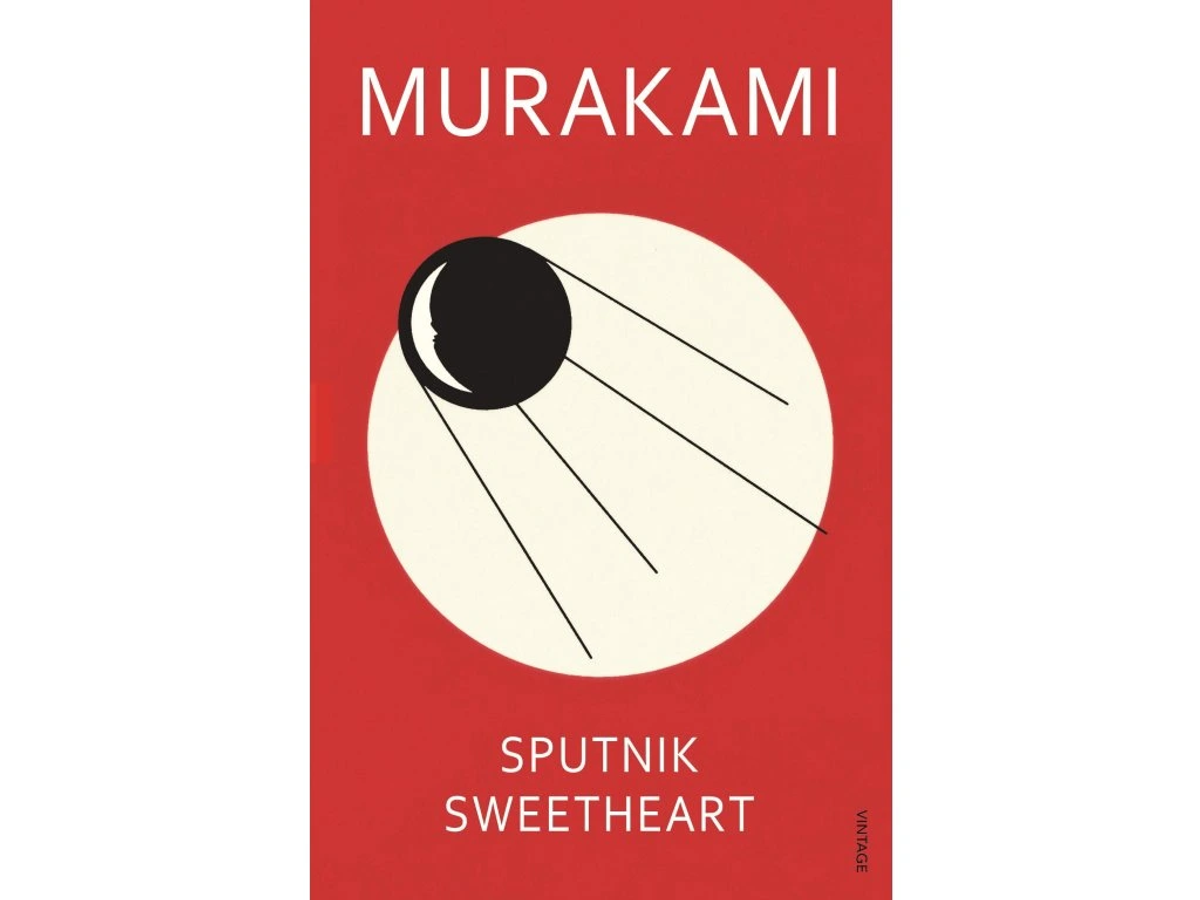

Expressed through Murakami’s subversive use of magical realism, Sputnik Sweetheart focuses on the emotional turmoil caused by love and loss. Murakami’s synthesis of both experiences allows the reader to understand the vitality of both to the human experience. His focus on both love and loss in relationships is expressed through the titular “Sputnik” and “Sweetheart”, presenting the way each character‘s feelings of love and loss orbit one another, yet never meet. Ultimately, these emotions encompass each character, and their interconnection is presented through each’s isolating, unrequited love. Personally, Sputnik Sweetheart has evoked a reflective experience for me, drawing me to ponder the value my own relationships hold, and reflect on the ways they’ve shaped my personal experiences. Ultimately, Sputnik Sweetheart encaptures the fleeting reality of life and personal relationships, and expresses this through an innate emotional experience, allowing the reader to ponder the importance of their own relationships.
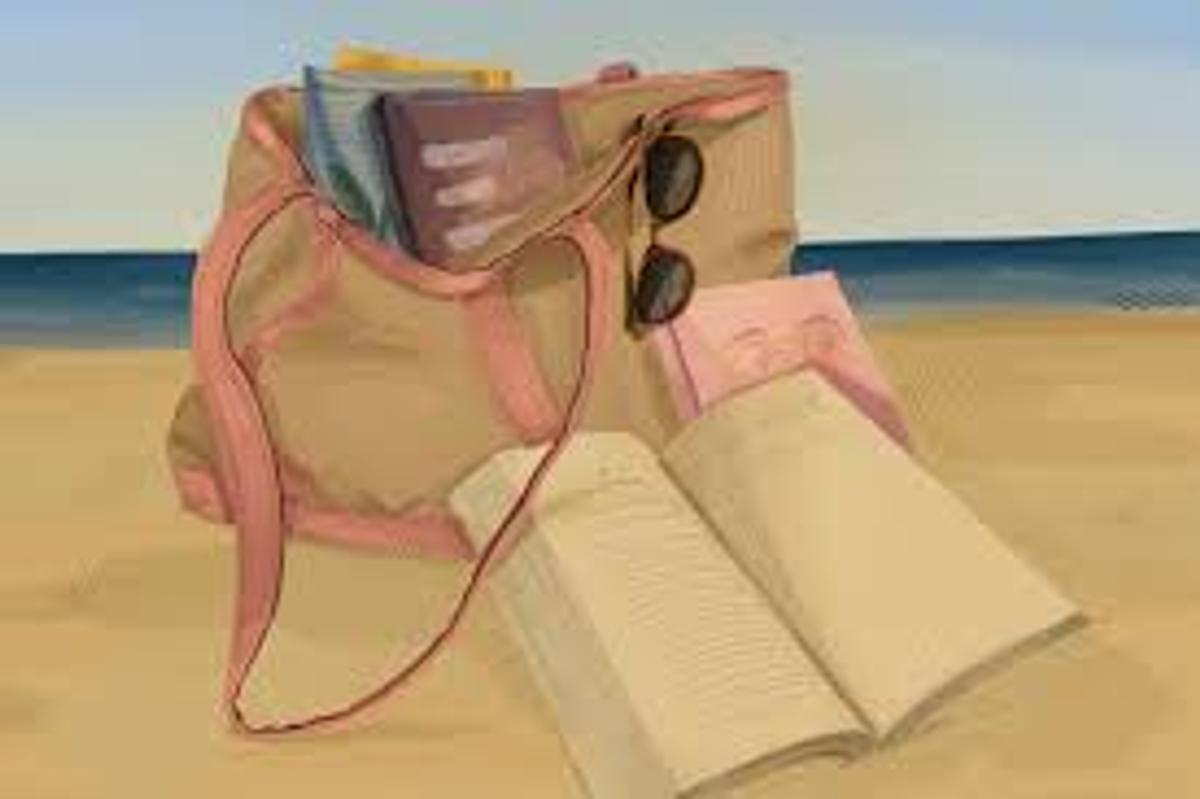

Adventure & Mystery
Fantasy & Sci-Fi
Classics
Contemporary & Coming-of-Age
Emotional & Reflective Reads
Historical Fiction
For Thrill Seekers
Natalia Hennessy
Head of English
“Great things are done by a series of small things brought together.”
- Vincent Van Gogh -
Another academic year is coming to a close and the Visual Arts Department wishes to congratulate our students on their success and creativity throughout the year. Under the inspiring guidance of our Visual Arts teachers, every student has developed their unique talents and experienced a wide range of artmaking practices. Artworks are being returned to students after our Primavera Art Studio Showcase, and our creative spaces are being tidied and re-stocked ready for another highly creative year ahead.
Primavera 2024 Visual Arts Studio Showcase
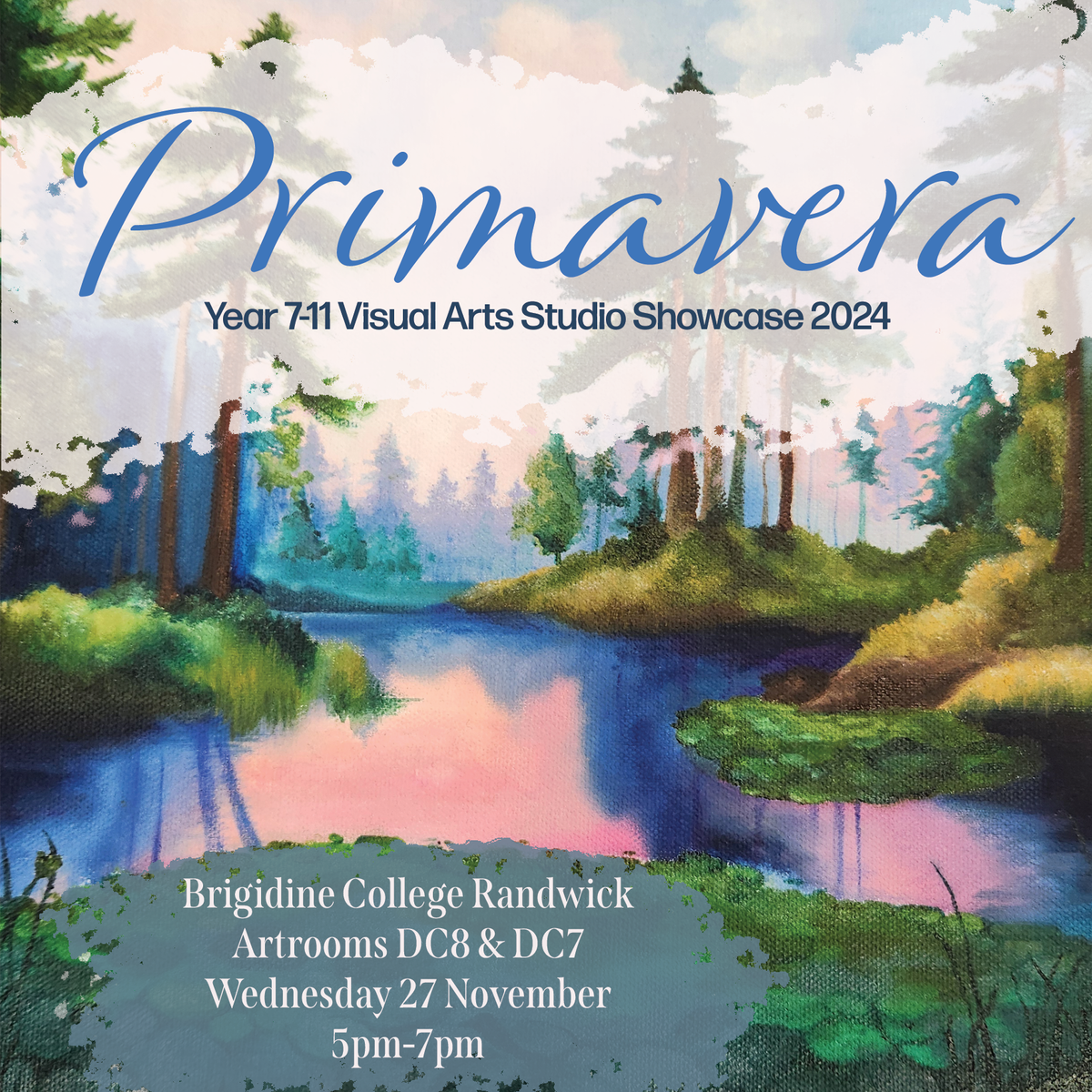

The Visual Arts Showcase held at the end of November presented an opportunity to celebrate the creative work of year 7 and year 8 Semester Two students, and year 9, year 10 and year 11 elective students. Artworks on display showcased the creative talents of our students as well as their progression of skills and experiences working with a number of different materials and mediums. From ceramics to sculpture, painting, drawing and photography, all of our students have excelled beyond our expectations and produced a wide portfolio of artworks over the course of the year. This event was not only a wonderful opportunity to showcase our students' work, but also for parents to see our creative spaces and celebrate their daughter’s success. We hope to continue the exhibition and celebration of our talented students' achievements in future exhibitions in 2025.
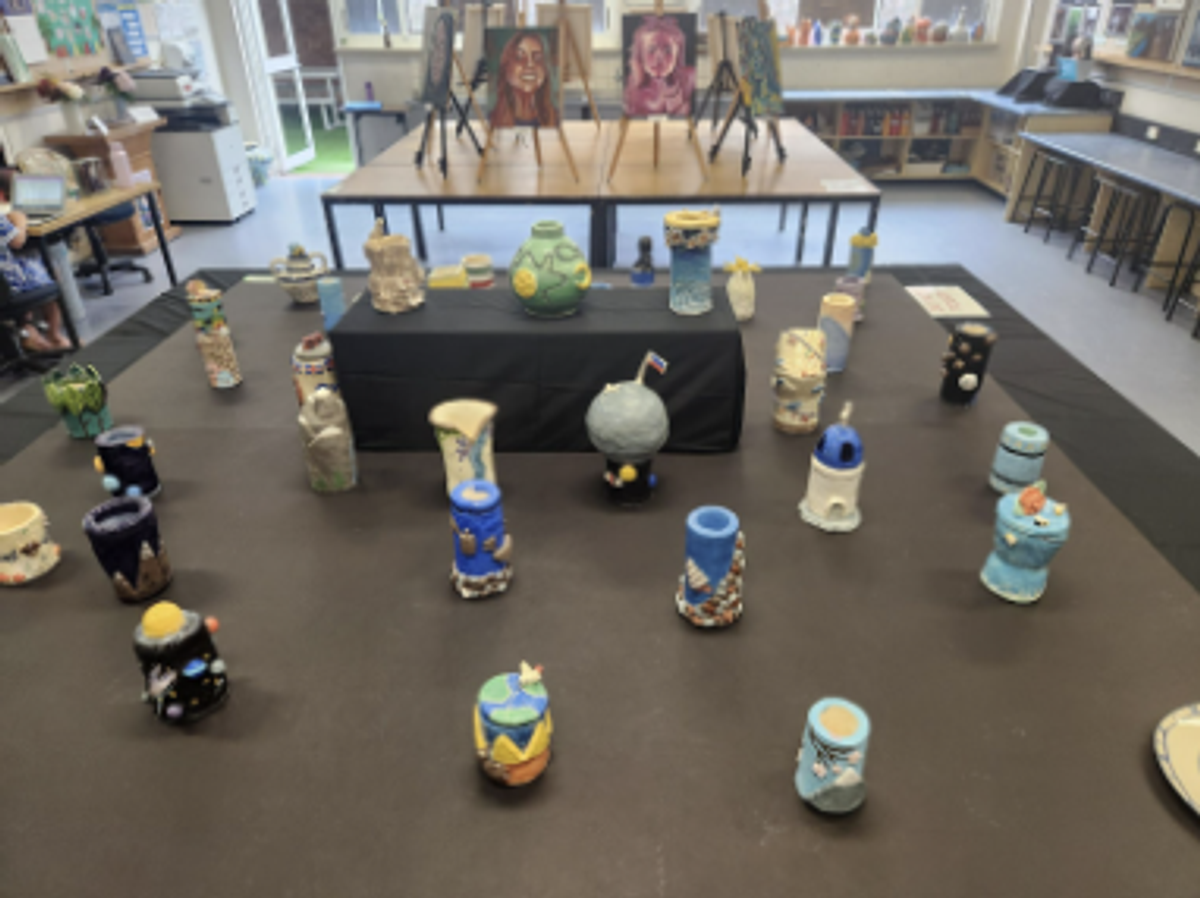
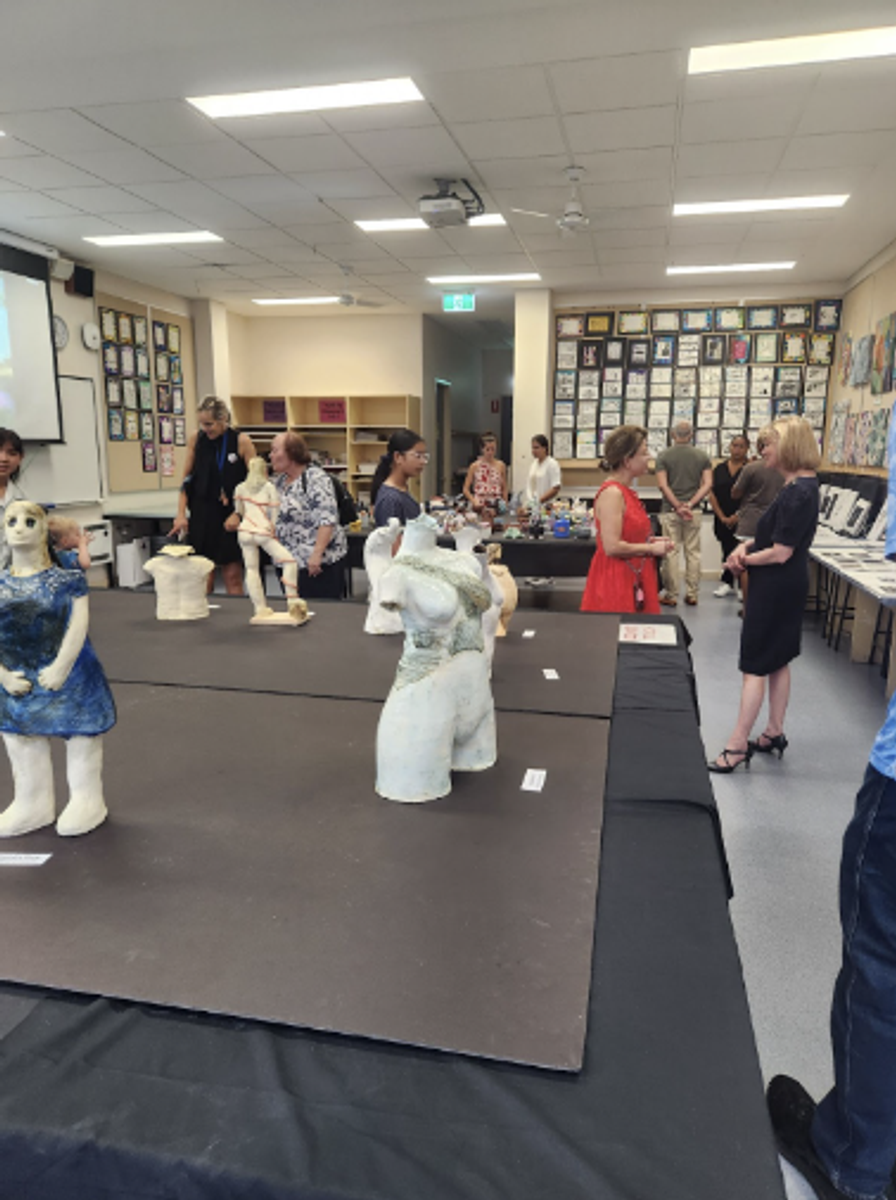
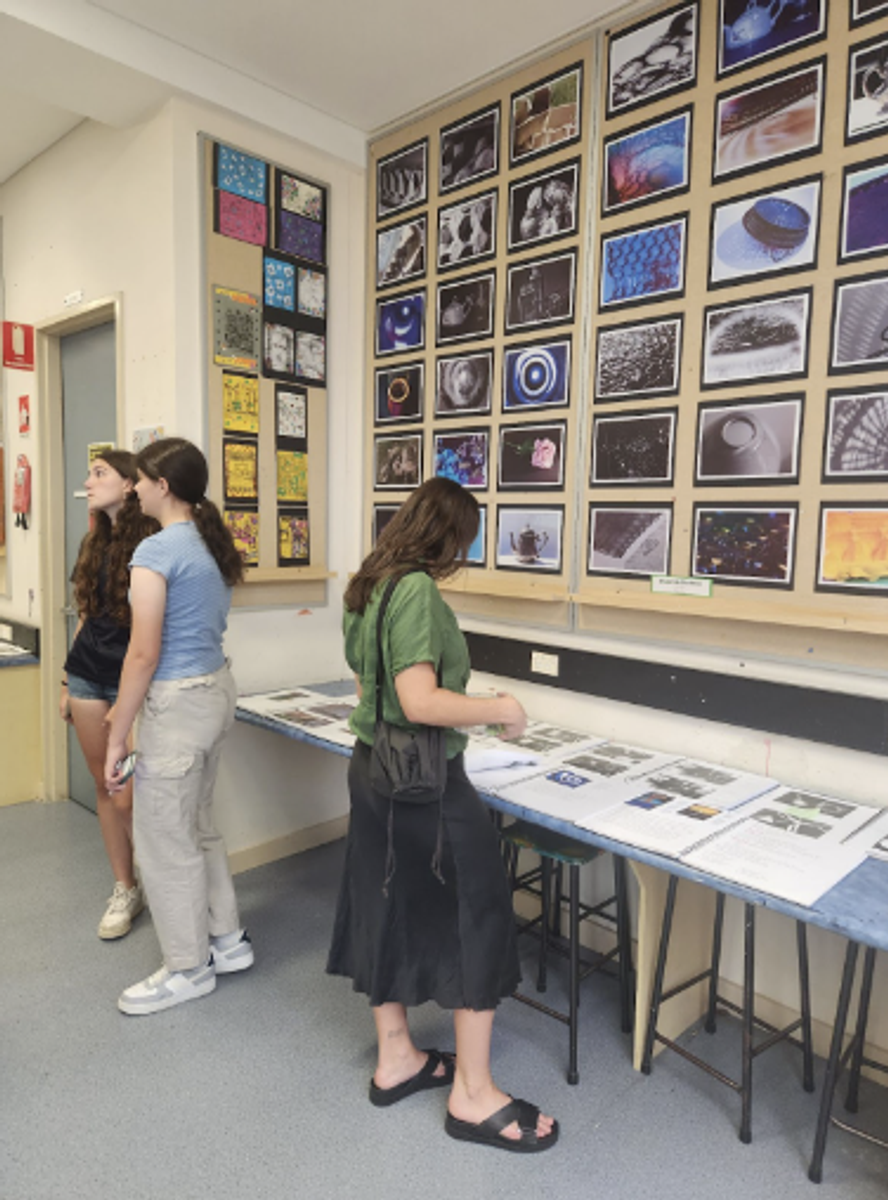



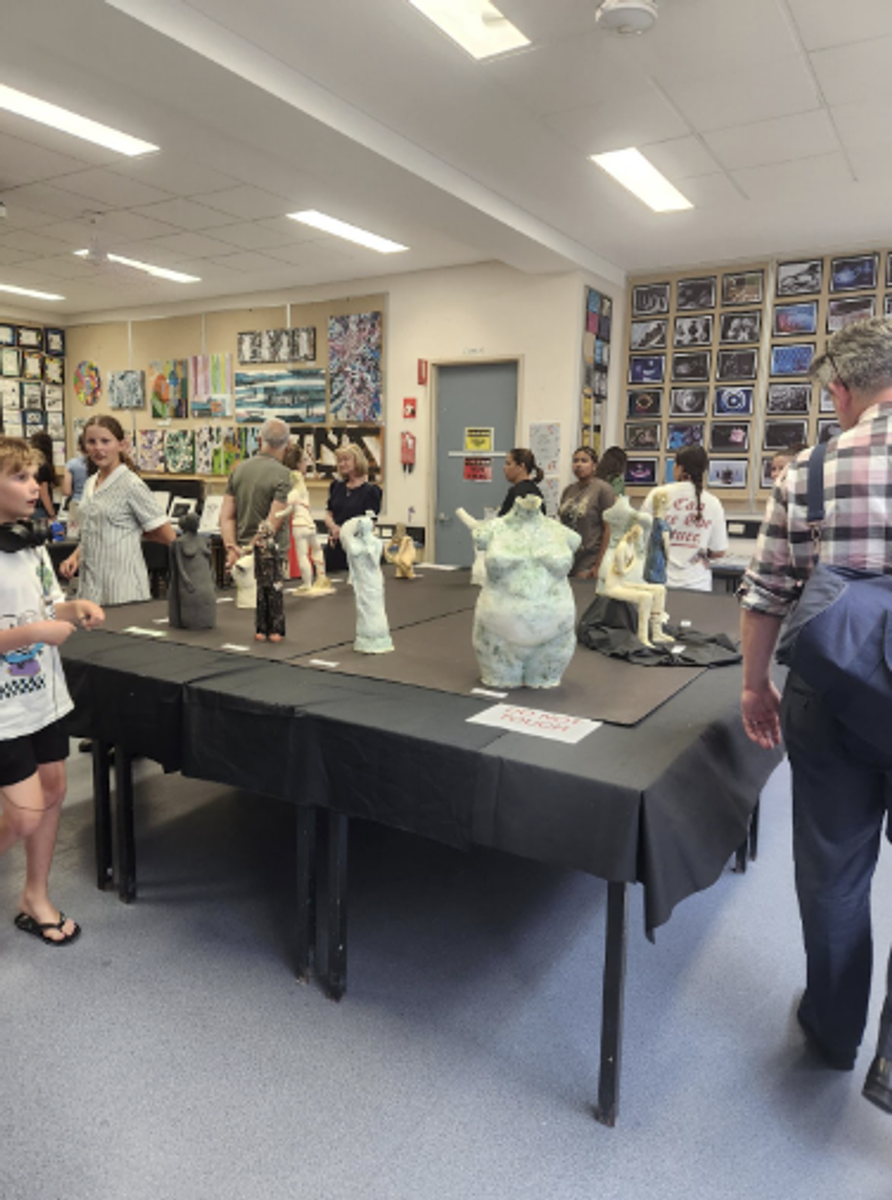

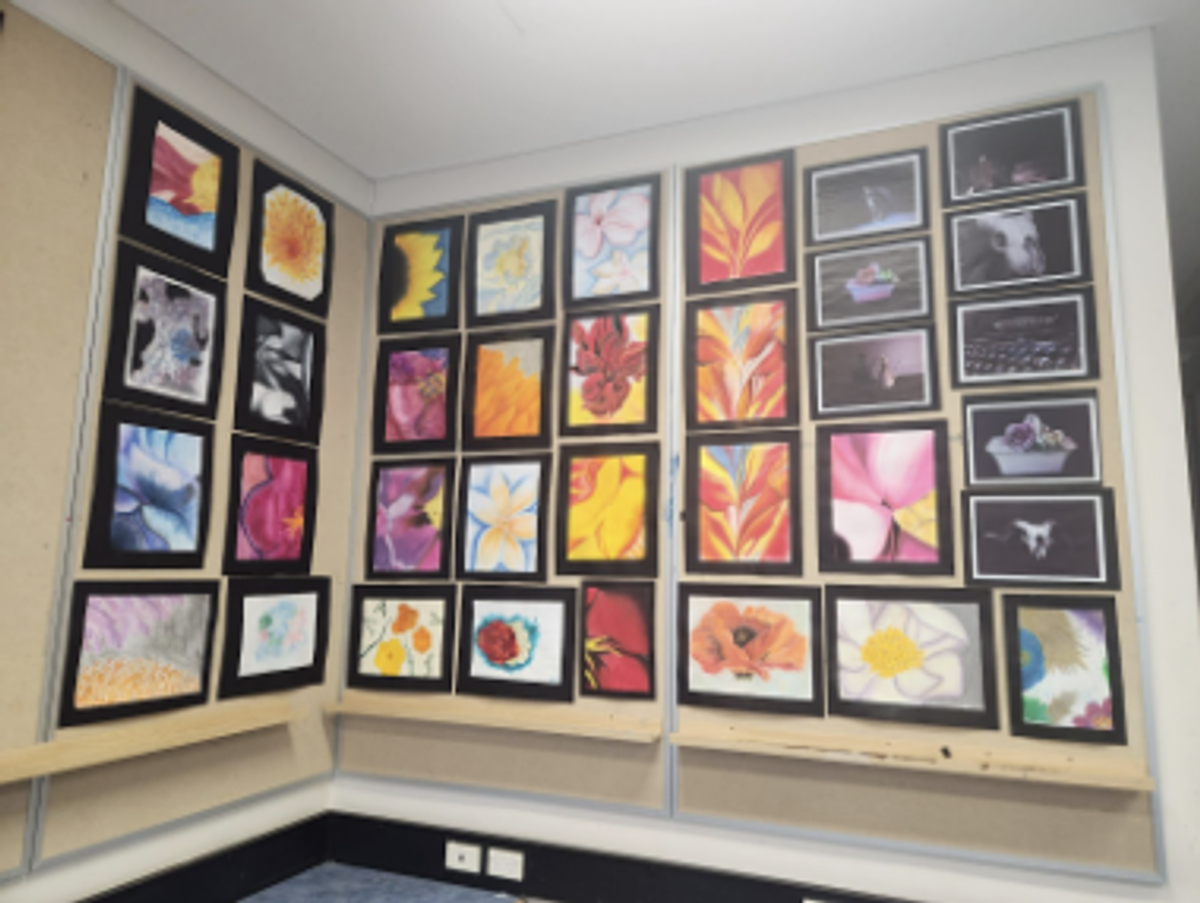



SCS Network Festival 2024
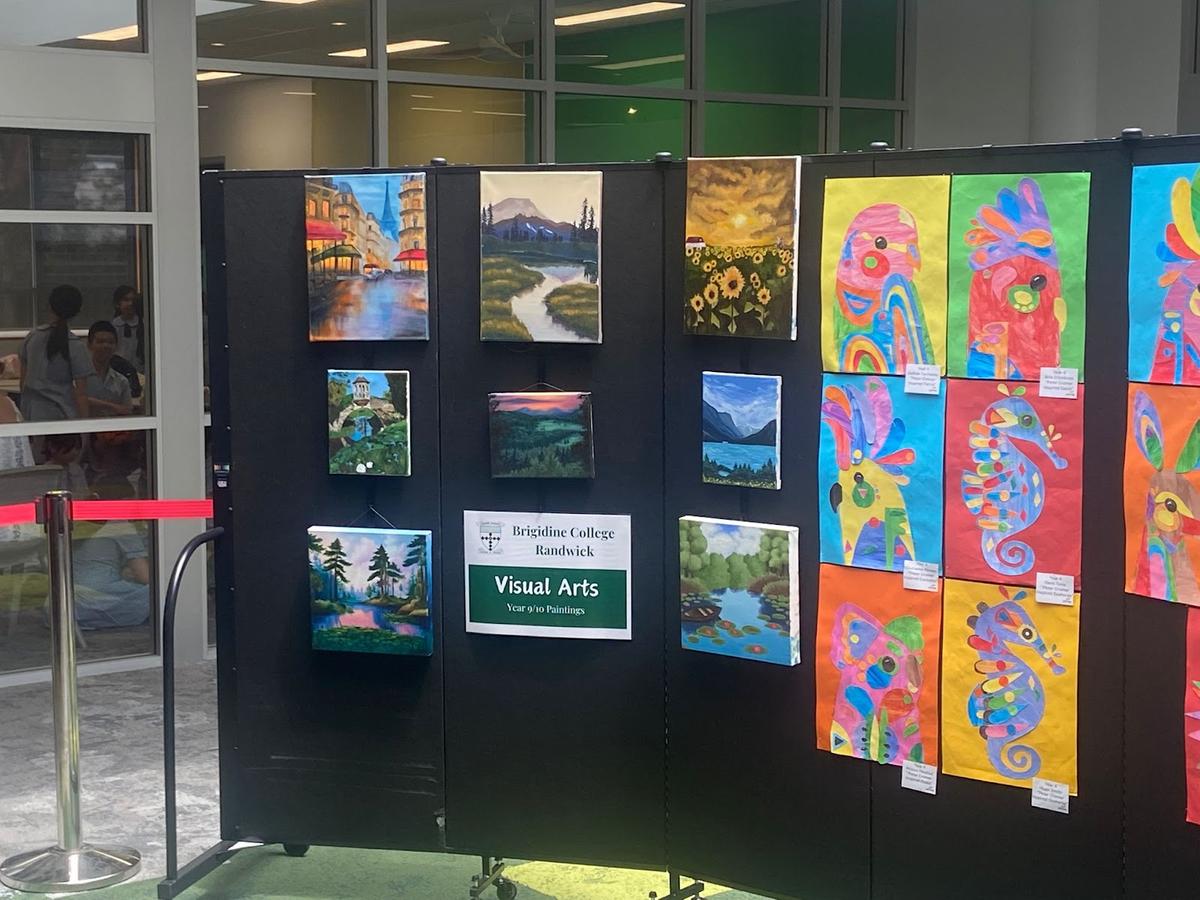

In November, Sydney Catholic Schools also held a series of Network Festivals where schools collaborated together to showcase the creative work and talent of their students. This festival showcased art, music and drama, with Brigidine College participating in Hub 2 at Marist Catholic College, Penshurst. Eight of our skilled year 9 and year 10 Visual Arts elective students were selected to be showcased in this event with their oil painted landscape making quite the visual statement. Congratulations to Talia Lissett, Jordana Agus, Tisya Chopra, Amelie Nyker, Mia Thlivitis, Ivanna Lee, Mirin Kwak and Zuri Wala for outstanding artworks to display.
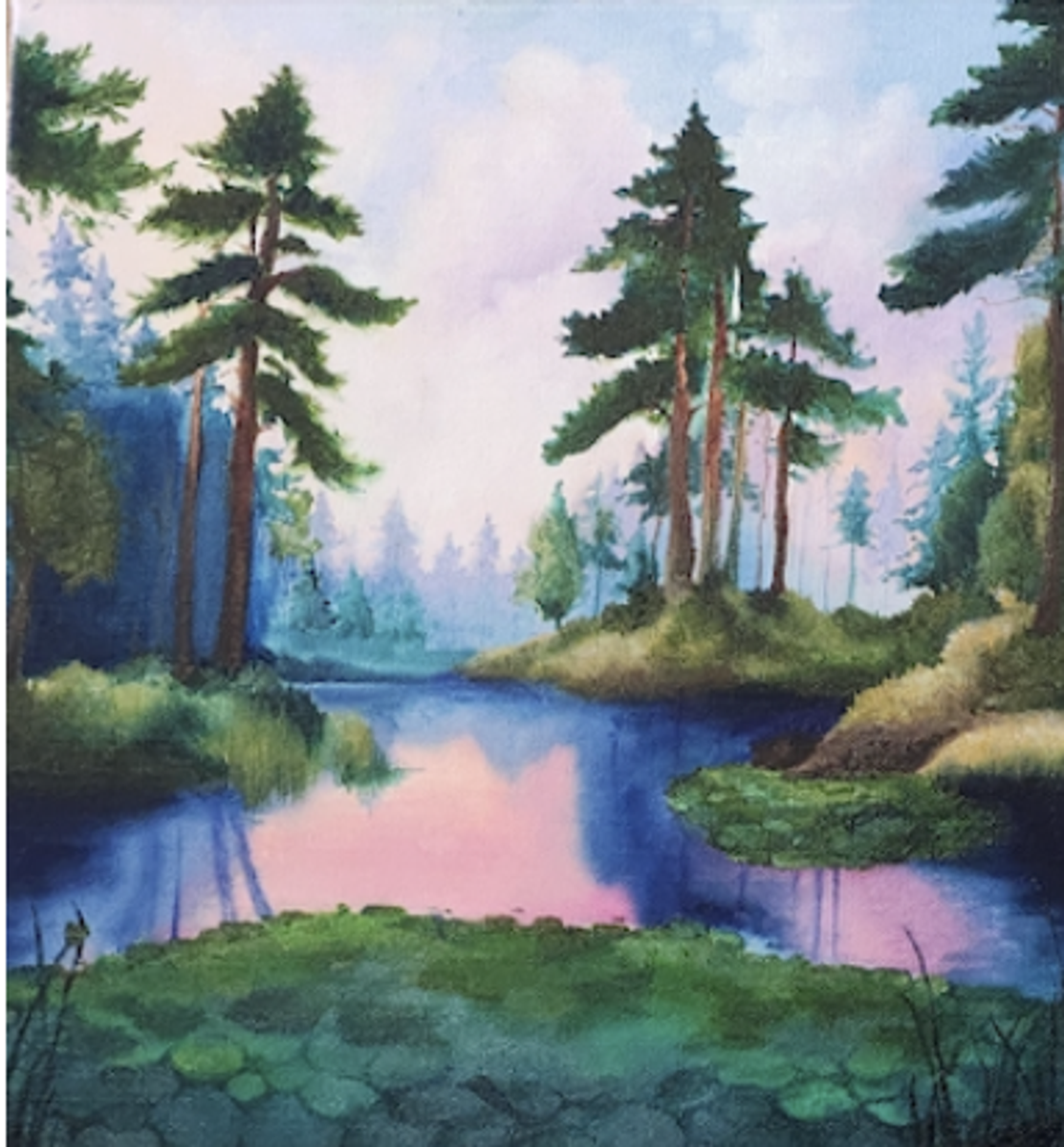
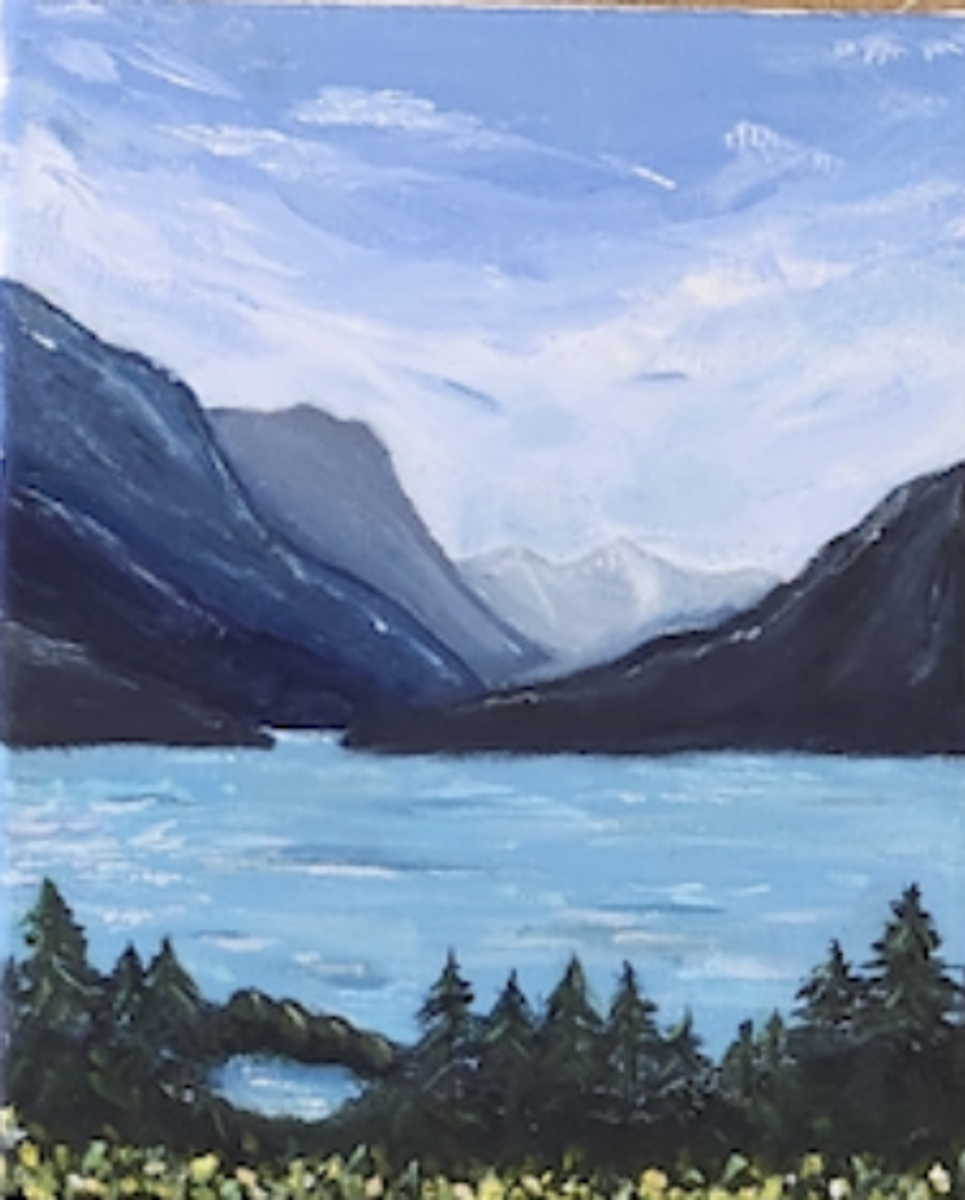
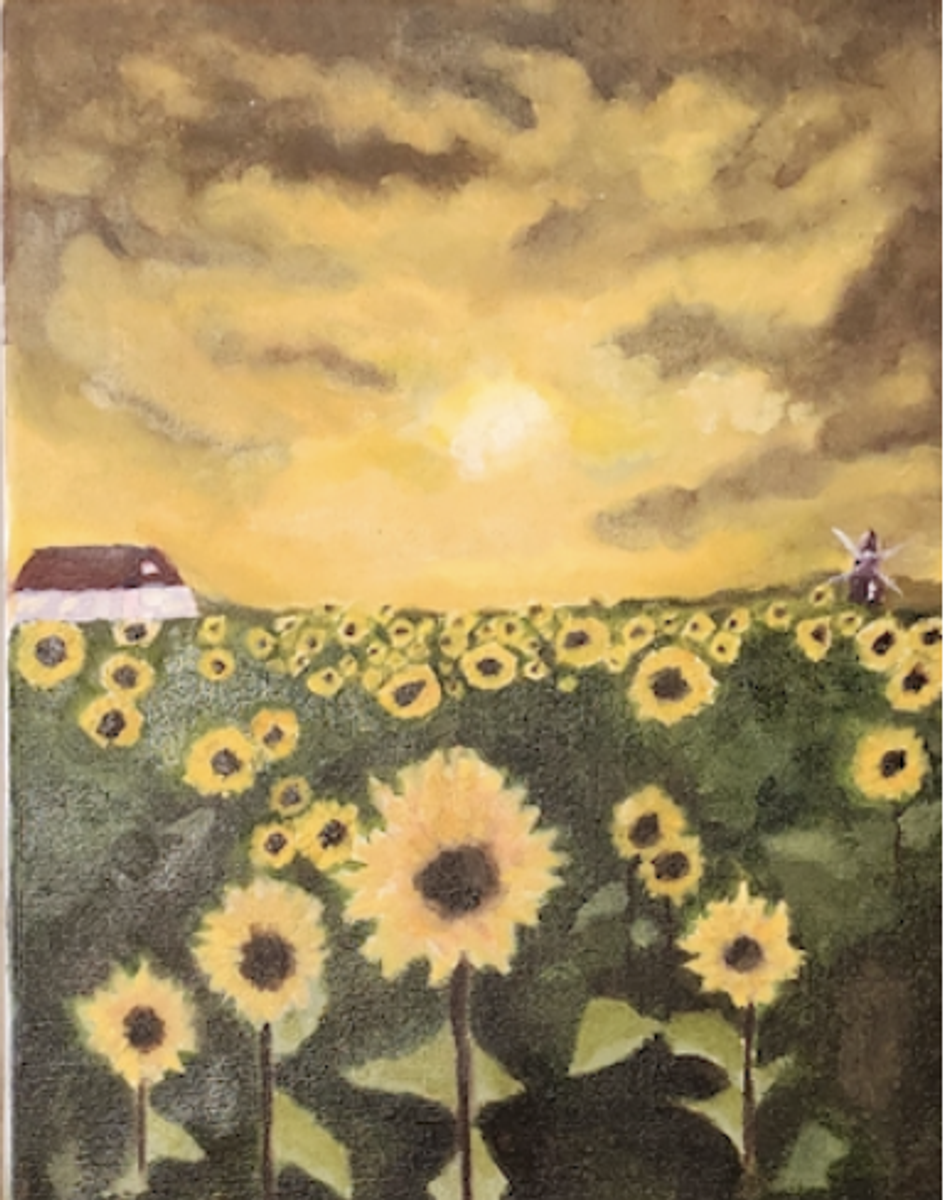



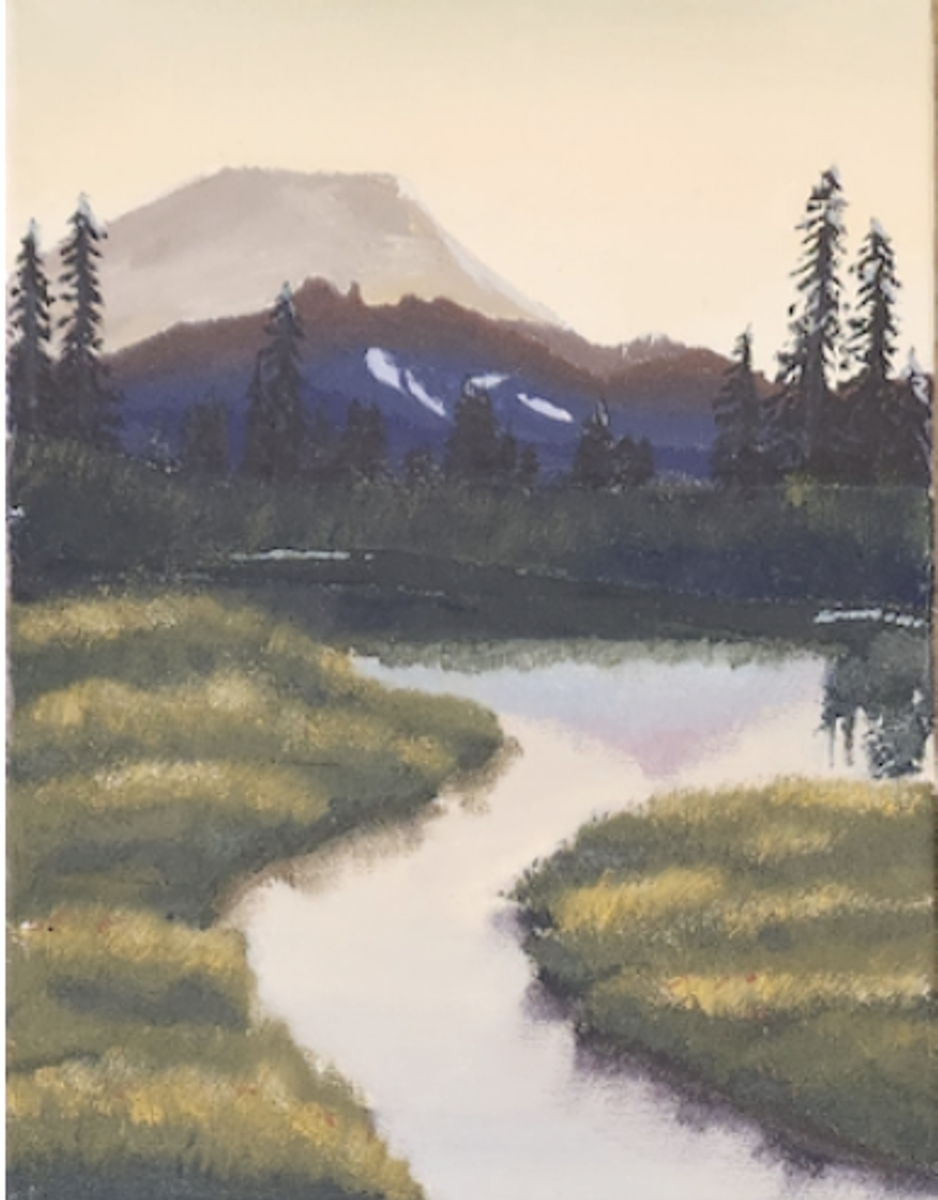

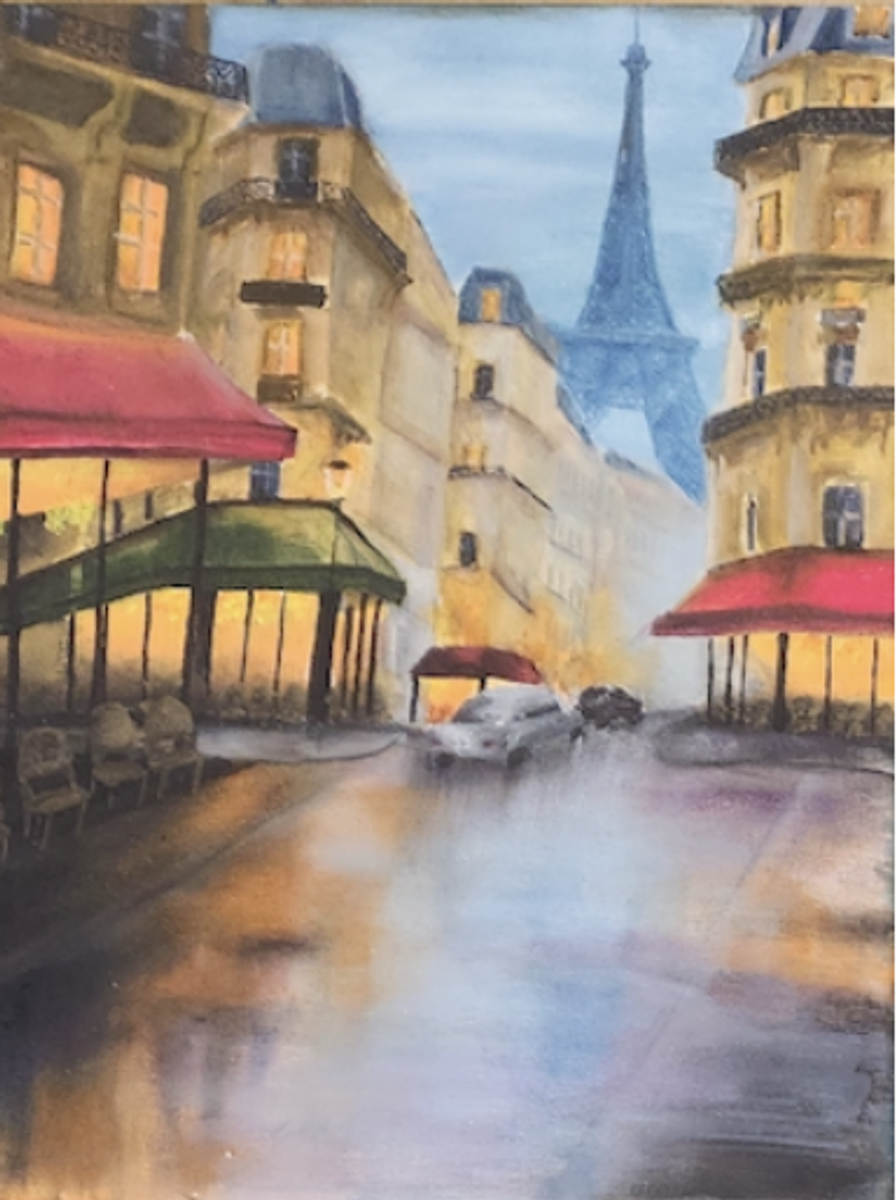



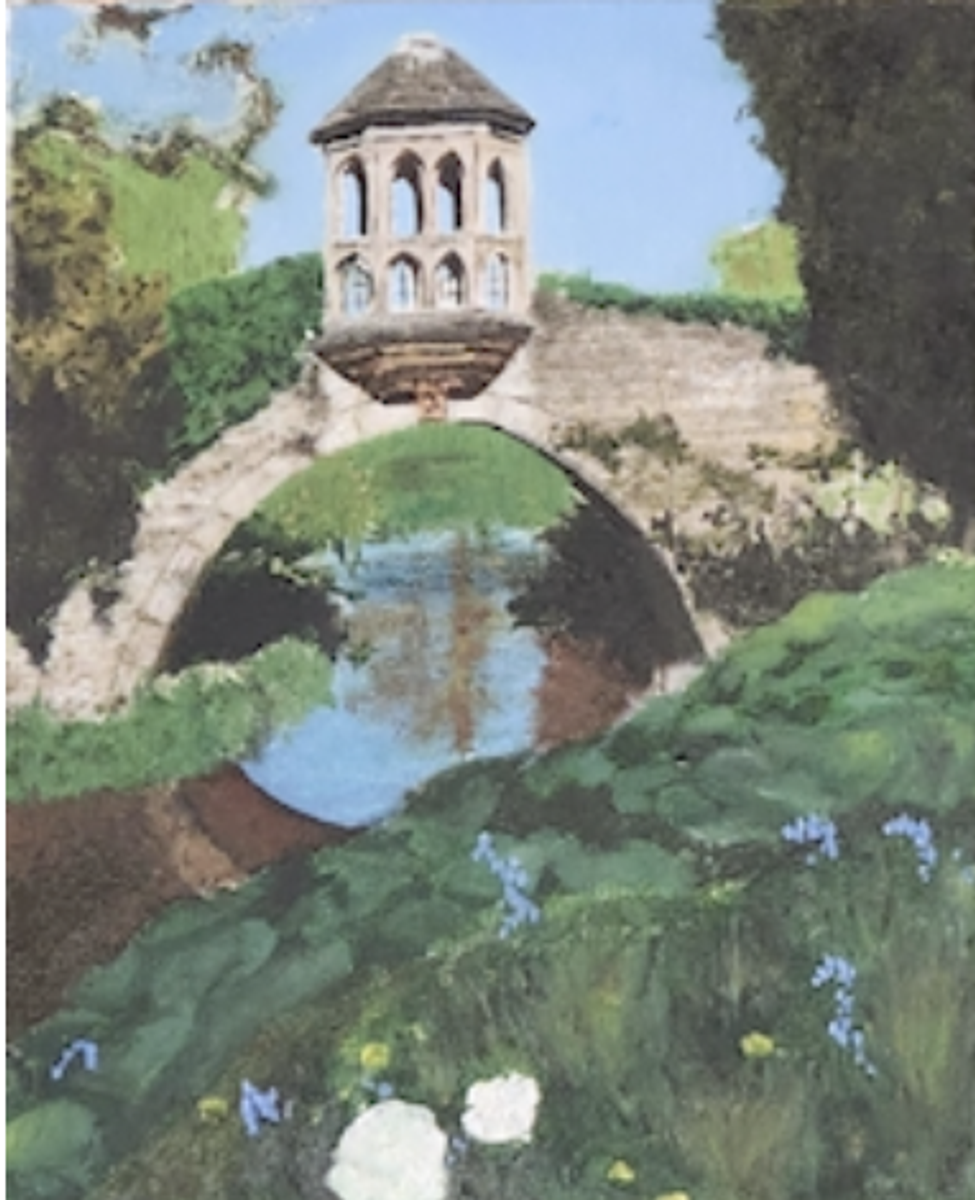
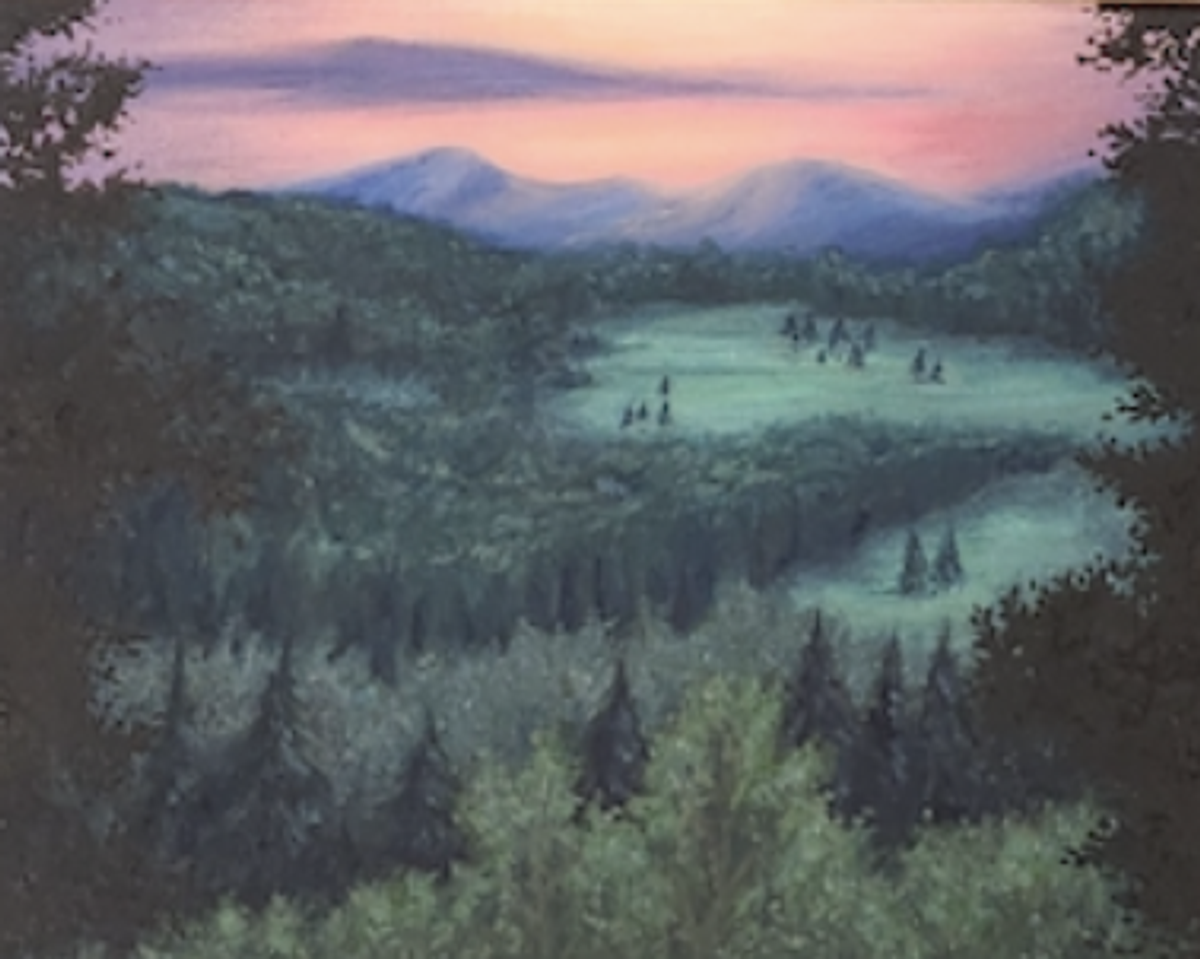


Holiday Artmaking Ideas: Keep Your Creativity Flowing!
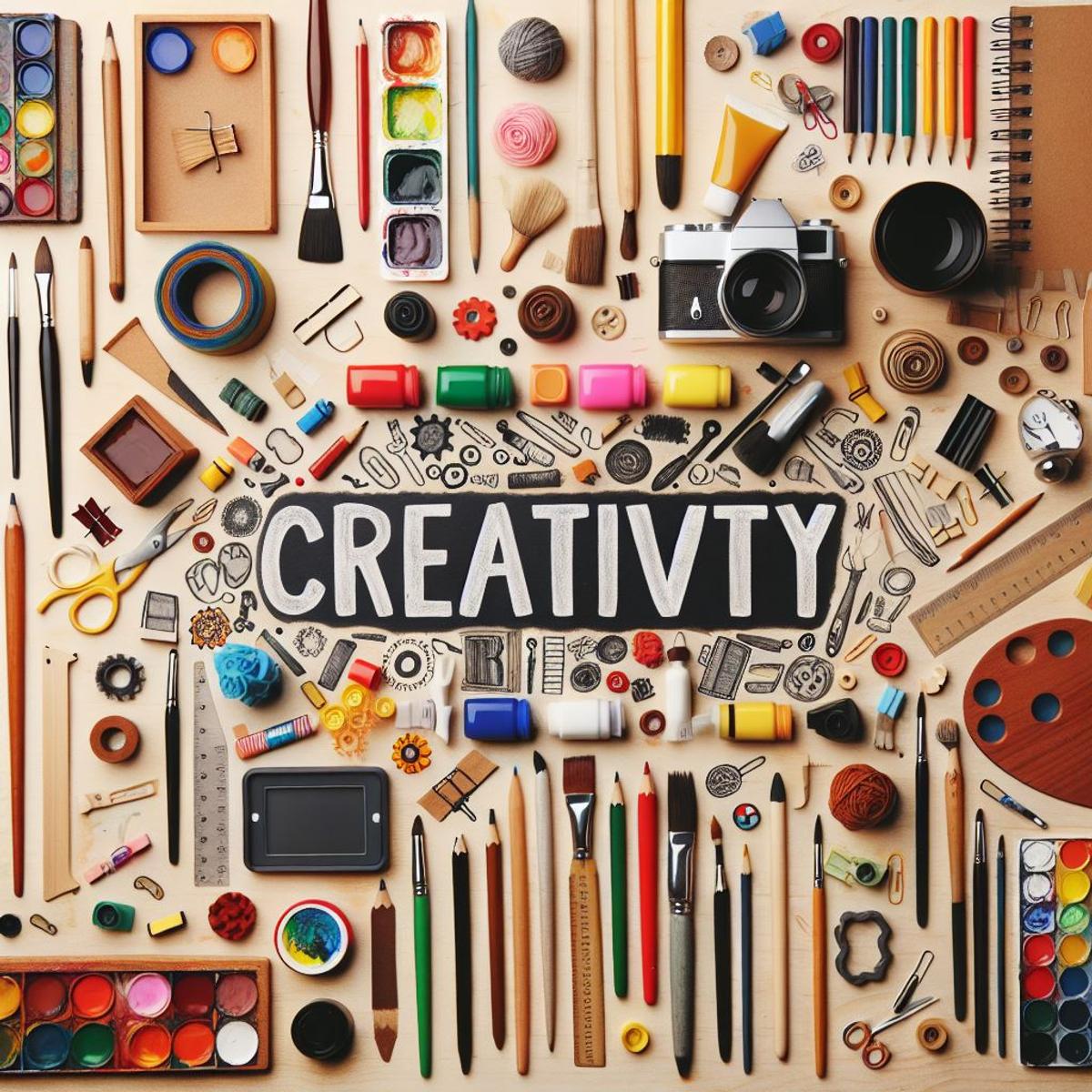

The Christmas and summer holiday break doesn’t mean you need to break away from art! Keep your creative juices flowing over summer with some of these ideas:
On behalf of the entire Visual Arts Department, I wish all of our students a wonderful Christmas break and Happy New Year. We look forward to seeing everyone return next year, ready to explore more of their creativity and flourish in the making of a range of artworks.
Melissa Nutter
Head of Visual Arts
"Christmas is a season not only of rejoicing but of reflection."
– Winston Churchill
As we approach the end of 2024 and welcome Christmas, the Drama department looks back at what a busy and exciting year it has been. We’d like to reflect upon the great effort and success we have had, thanks to the hard work of our students and staff. Our Eisteddfod group and monologists success, our spooktacular college production of ‘The Addams Family’, our many elective class excursions and adventures, and finally our Year 12 Onstage nominations for Group Project (Jade Dawes, Harper Lynch, Molly Menzel and Lucy Williamson) and Individual Project Performance; Jade Dawes.
But it did not end there, Term Four has been filled with more creative and academic means of exploring playbuilding and storytelling, not to mention the preparations for 2025 that have already begun:
Lights, Camera, Action..and Puppets? This term, our Year 9 and 10 students embraced their inner filmmakers, exploring the art of storytelling through the lens. Year 9 looked at how to incorporate puppetry into storytelling, both designing and making through own puppets too. Year 10’s explored mockumentaries through scriptwriting, directing and editing. Check out some of the behind the scene photos, and one Year 9 group's brilliant puppet film below.
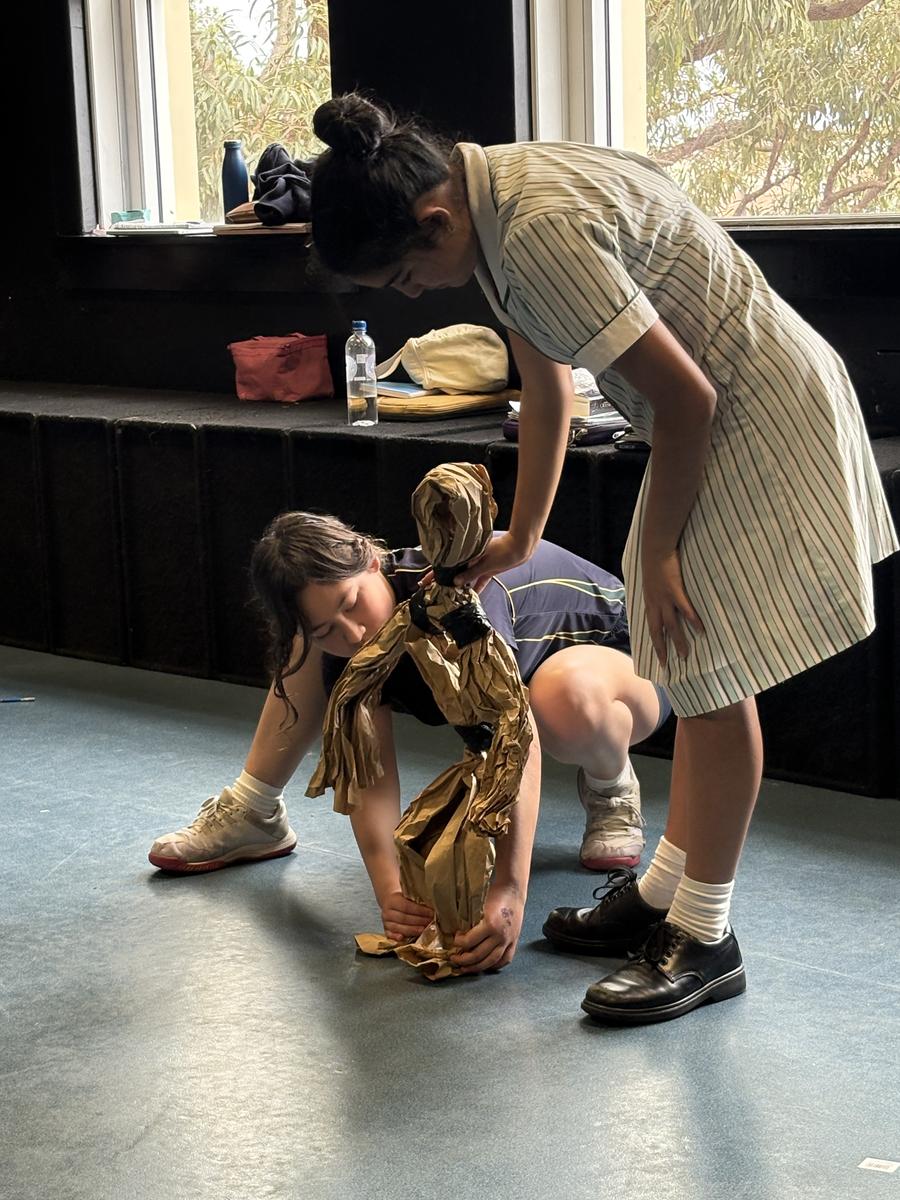
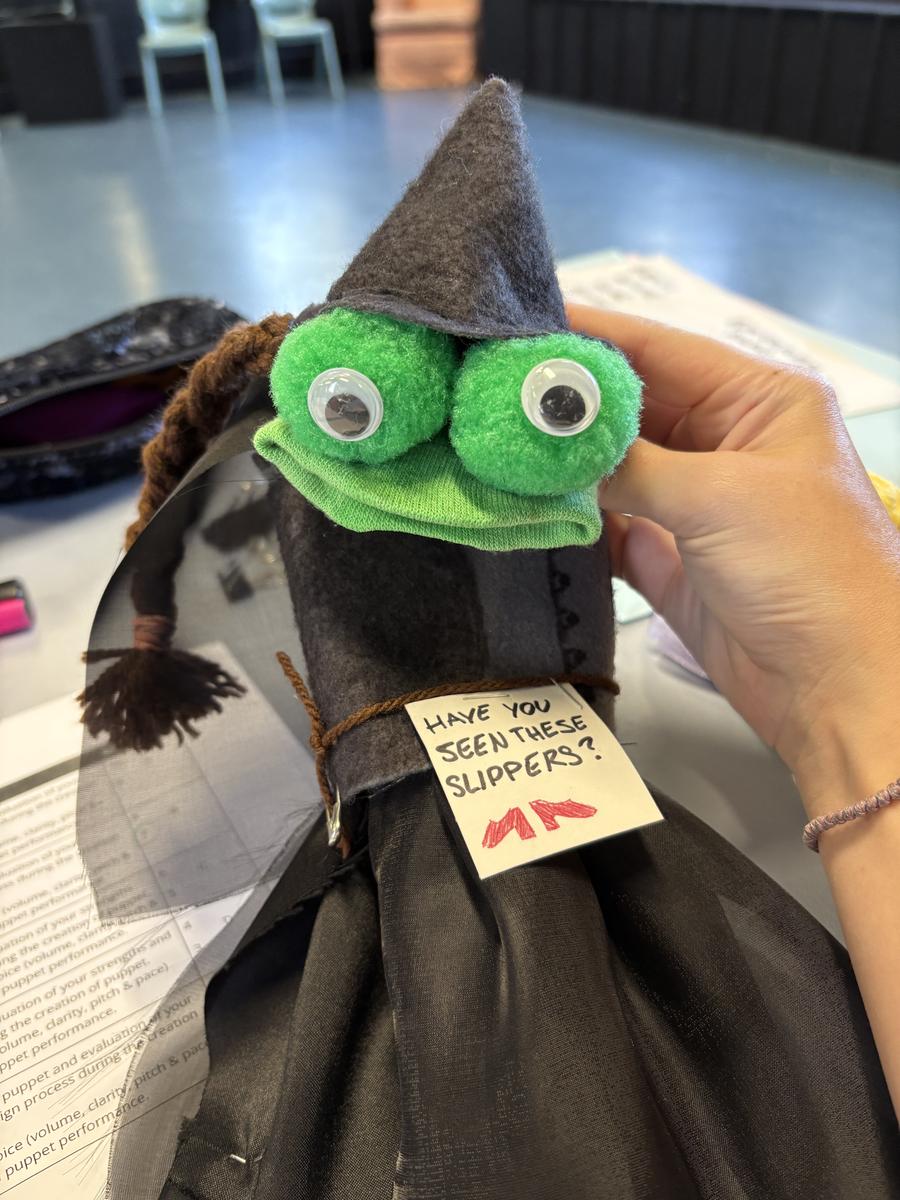
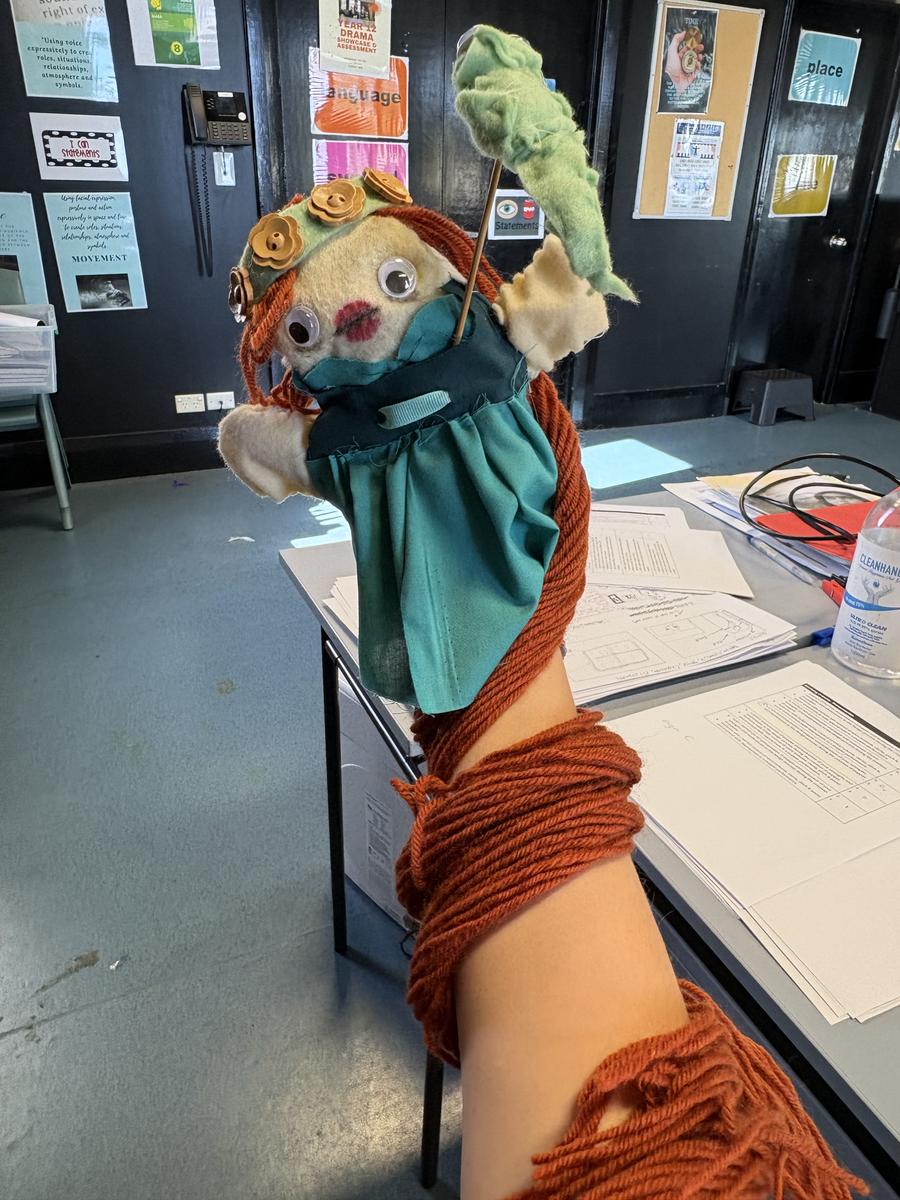



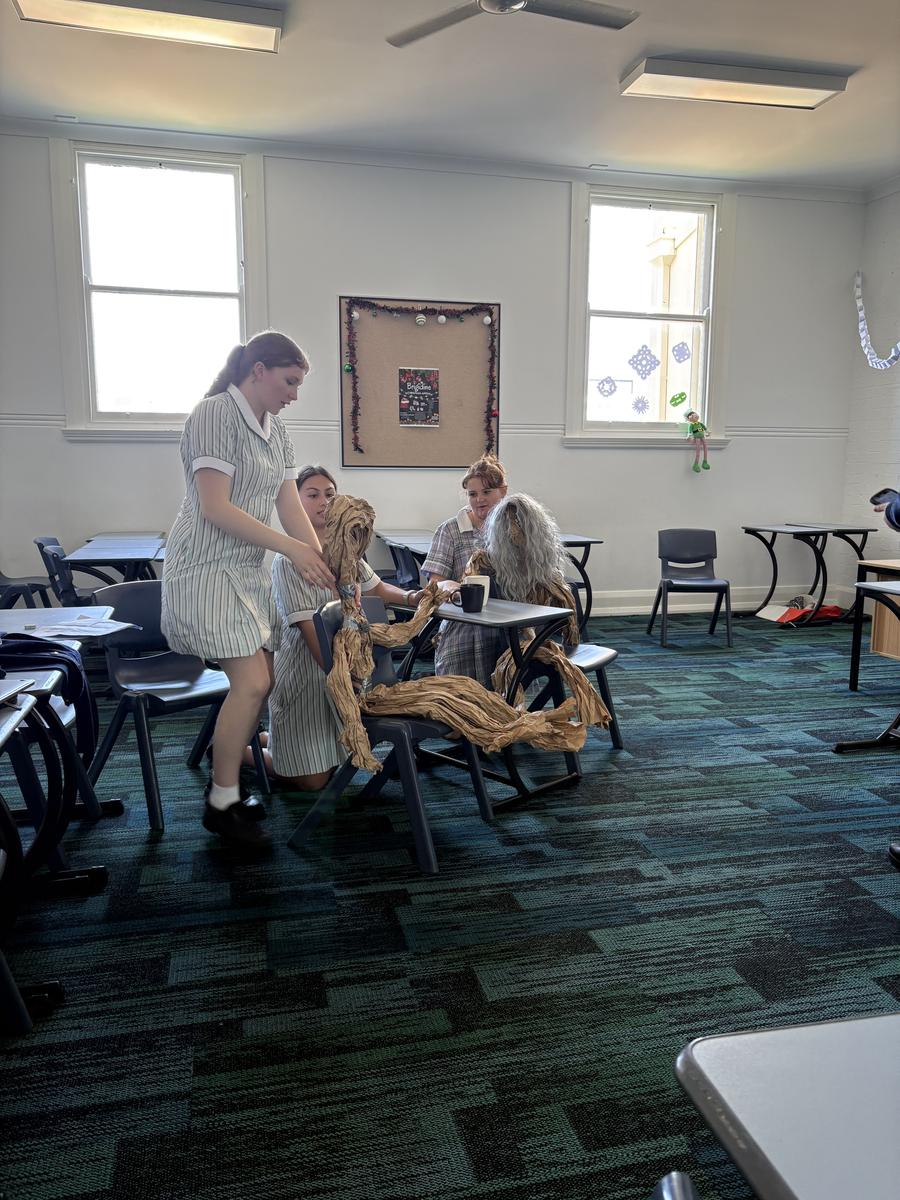

HSC Preparations Underway Our Preliminary Year 11 students have officially commenced their HSC Drama content. They’re diving into new challenges and honing their skills as they prepare for the pinnacle of their Drama studies. We’re excited to see their growth and can’t wait to support them through their HSC journey.
New Extracurricular Opportunities in 2025 Next year, we’re thrilled to offer even more ways for students to engage with Drama beyond the classroom. Theatre Sports will be available during Thursday sport for Years 9-11, providing a fun and dynamic way to build improvisation and performance skills. Additionally, Drama Club will be held on Wednesday afternoons after school, open to students who are passionate about performing, competing and creating.
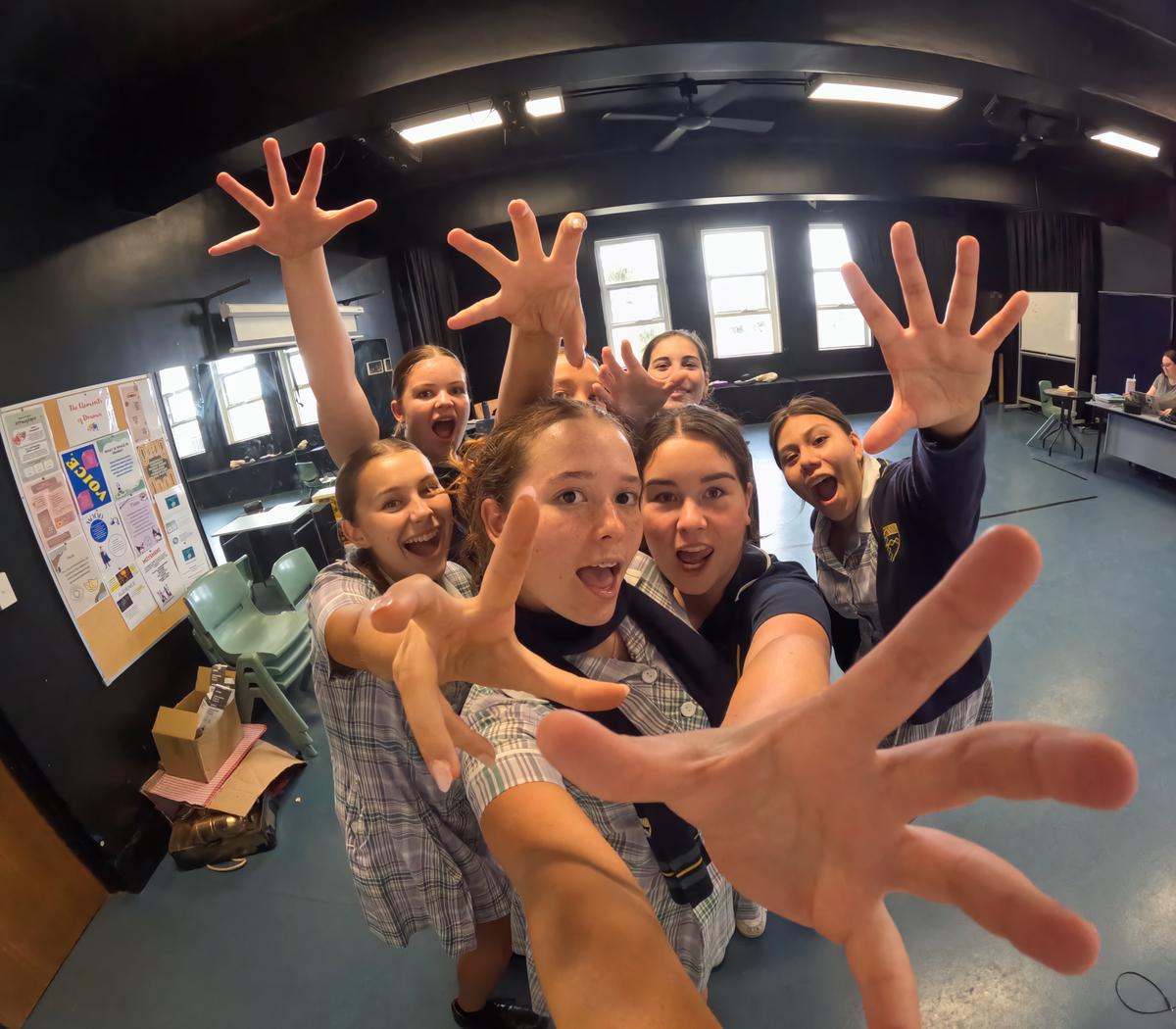

Stay Tuned for the SCS Eisteddfod Looking ahead to 2025, the SCS Eisteddfod is set to be an incredible competition and showcase of talent. More information will be shared soon but if you would like to peruse the handbook and start looking into your daughters monologue entries please click here [Link to handbook].
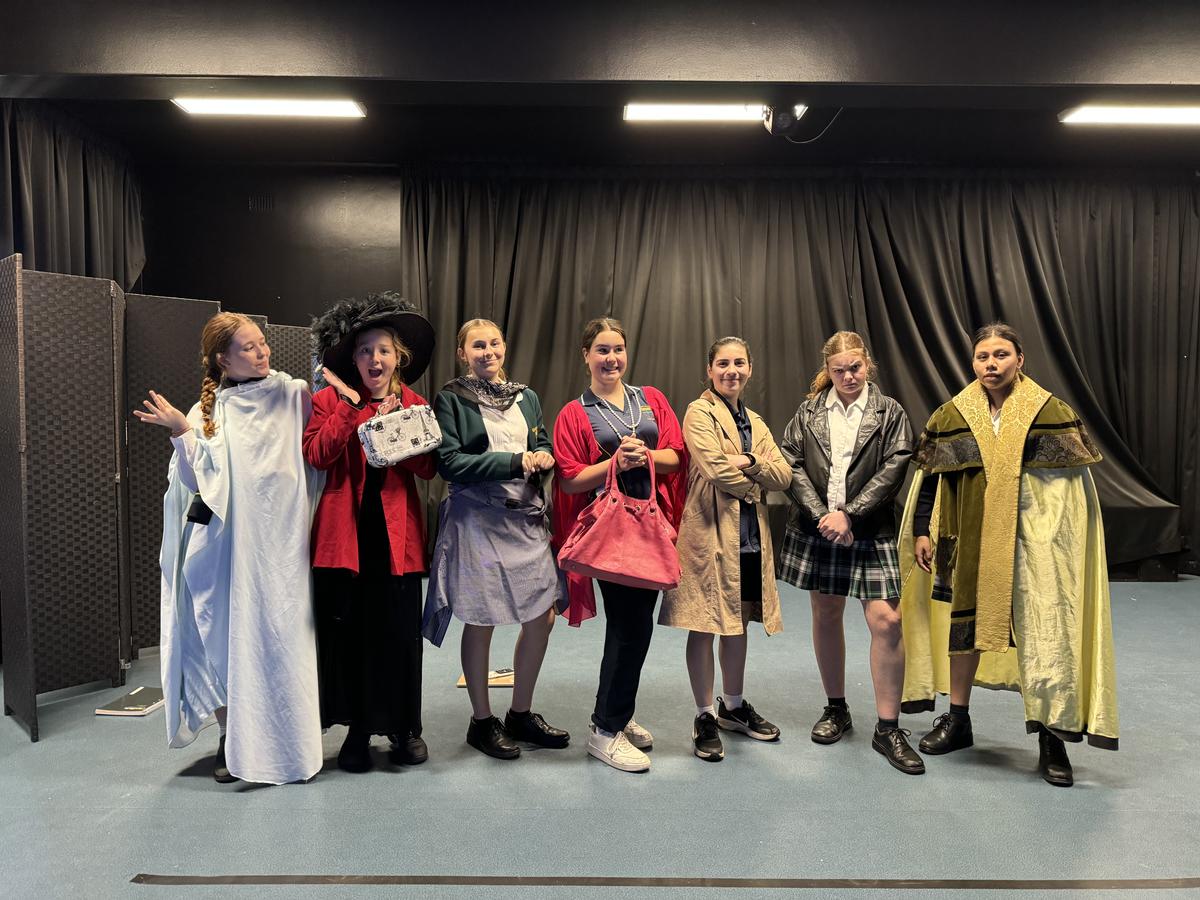

Farewell and Best Wishes As we celebrate the end of the year, we also bid a heartfelt farewell to Ms Catherine Exton, who has been an invaluable member of our Drama Department. Her passion, creativity, and dedication have left a lasting impact, and we wish her all the best in their next chapter.
Thank you to all our students, families, and staff for a fantastic year in Drama. We hope you have a joyful Christmas and a relaxing holiday season. We look forward to another year of creativity and collaboration in 2025!
Tayla Whiteman
Teacher-in-Charge Drama